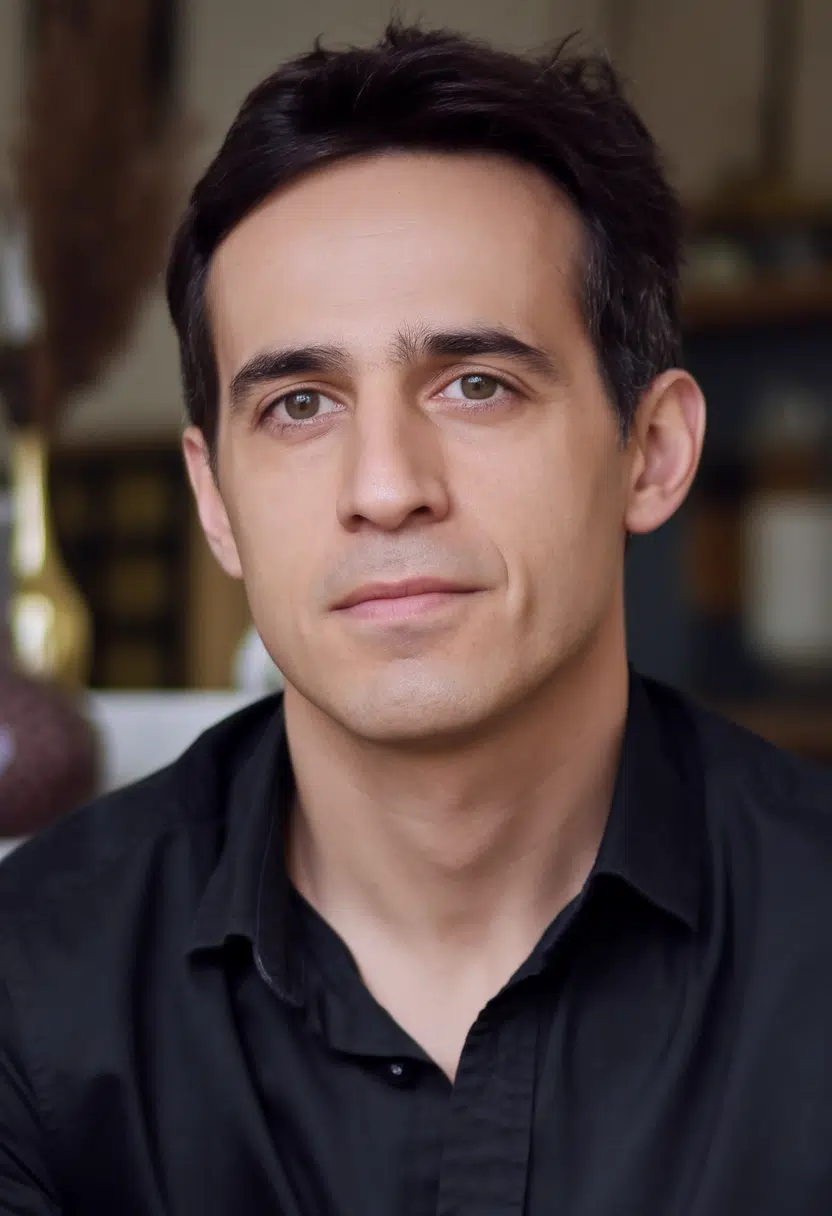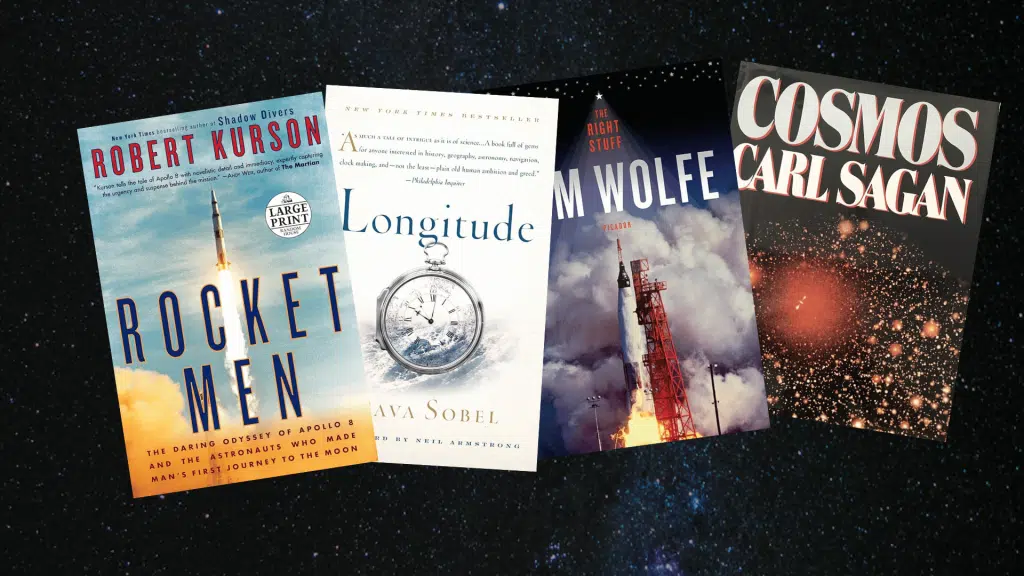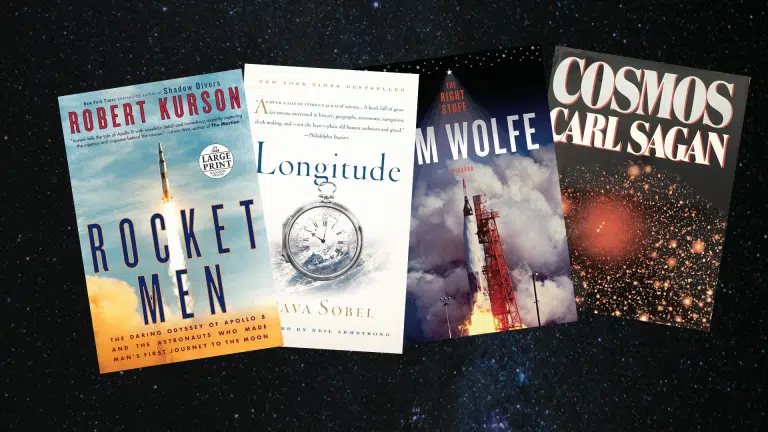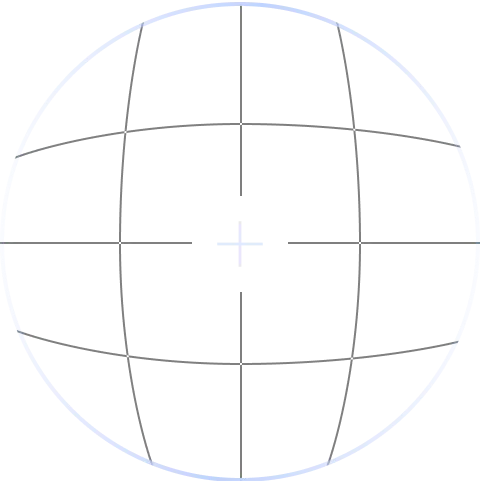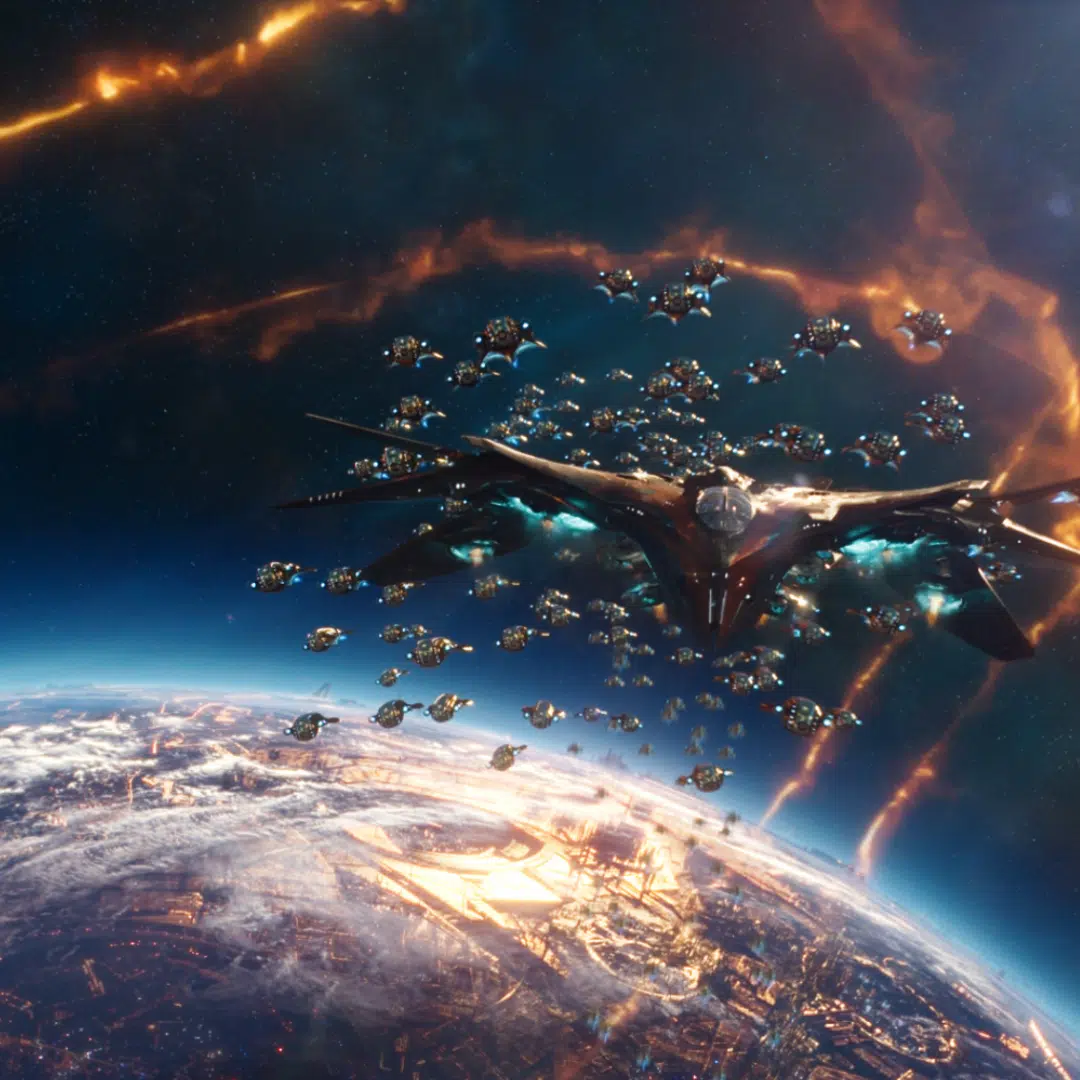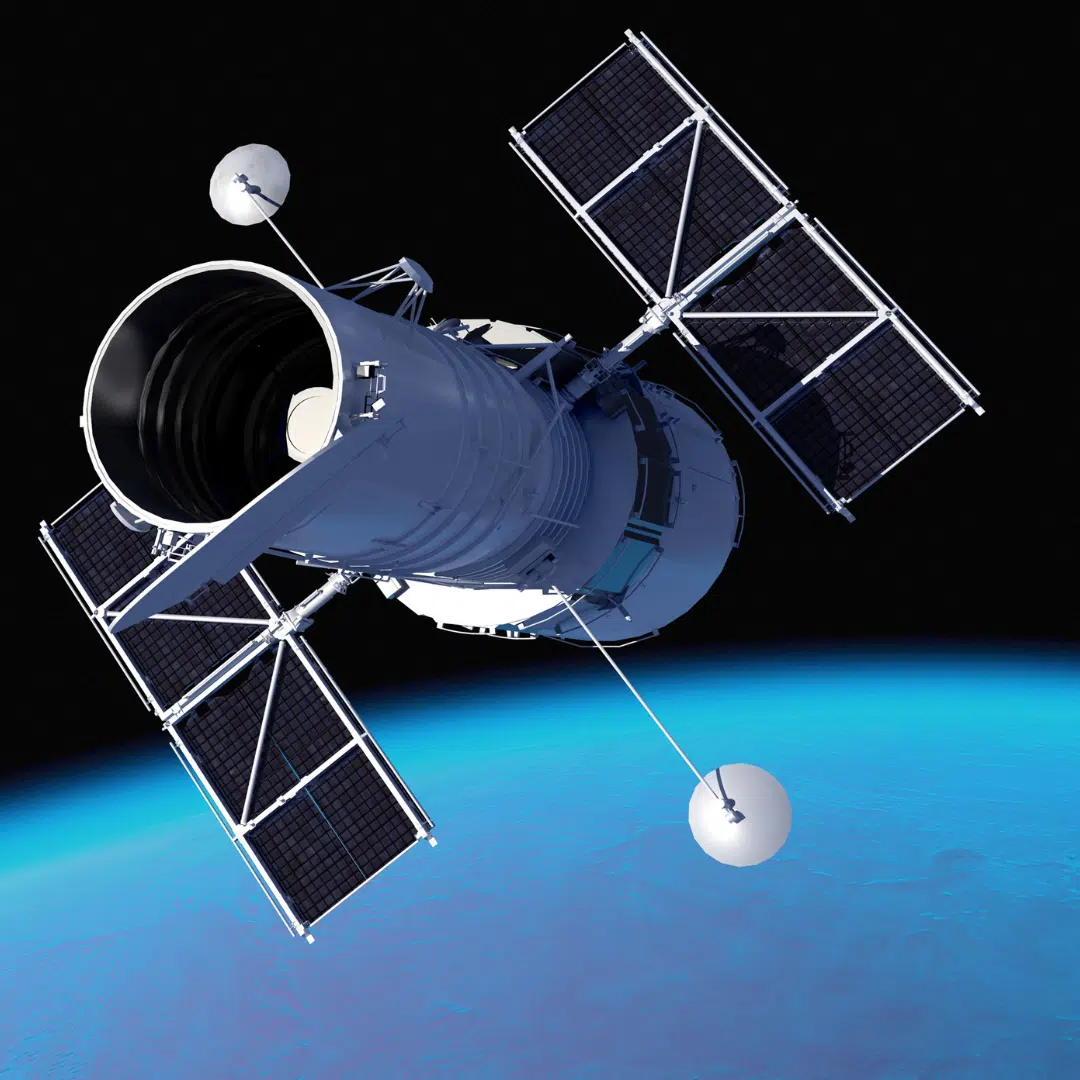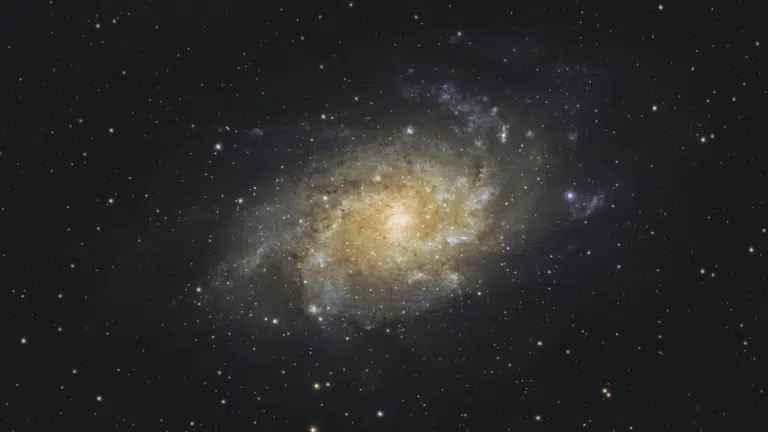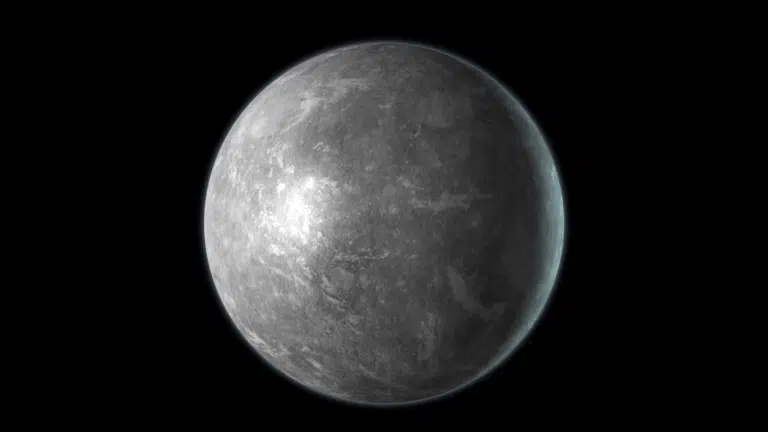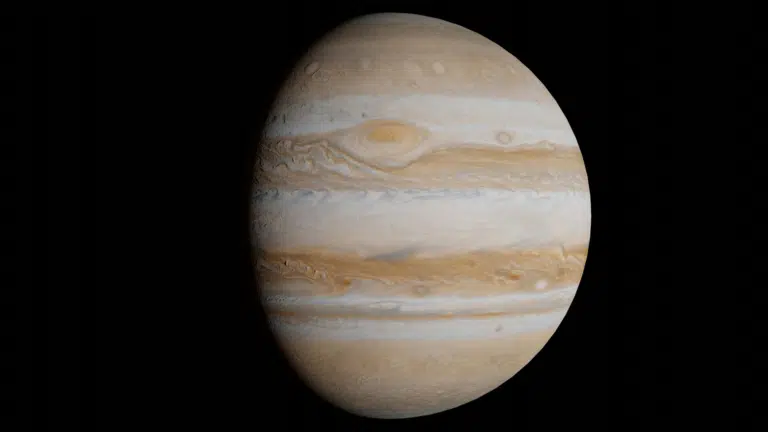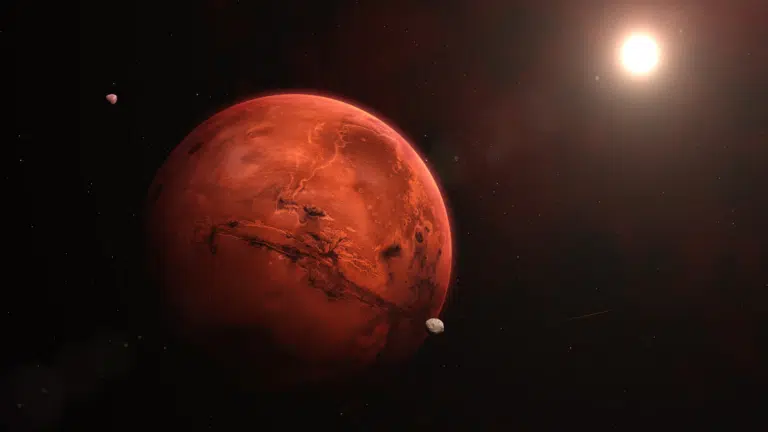Curious about the cosmos and wanting to find the universe from your reading chair? Find out quality books about space, which open your mind to cosmic surprise beyond everyday experience.
Space literature ranges from beginner-friendly introductions to advanced astrophysics texts, covering topics like black holes, planetary science, and theoretical physics concepts.
Even if you dream of becoming an astronaut, studying astronomy professionally, or finding what lies beyond, the right book changes curiosity into understanding.
These carefully selected titles offer something valuable for casual stargazers, students, educators, and serious space enthusiasts seeking knowledge about our universe.
Space Books That Inspire: What Readers Are Saying
Space enthusiasts have shared compelling book recommendations that changed how they view the cosmos. Carl Sagan’s Cosmos remains a timeless favorite, with readers praising his poetic approach to science.
One reader beautifully captured the magic:
“What an astonishing thing a book is… Across the millennia, an author is speaking clearly and silently inside your head, directly to you.”
Other highly recommended titles include Earthrise by Robert Poole, exploring the first Earth photos from Apollo missions, and A Man on the Moon by Andrew Chaikin, detailing astronaut voyages from 1968-1972.
For fiction lovers,
Three-Body Problem by Cixin Liu and The Expanse series deliver mind-bending narratives. Michael Collins’ autobiography Carrying the Fire offers intimate astronaut perspectives that readers found unforgettable.
Best Books on Space Science and Cosmology
Find out stellar reads spanning science, history, and imagination, perfect for space lovers everywhere.
1. A Brief History of Time by Stephen Hawking
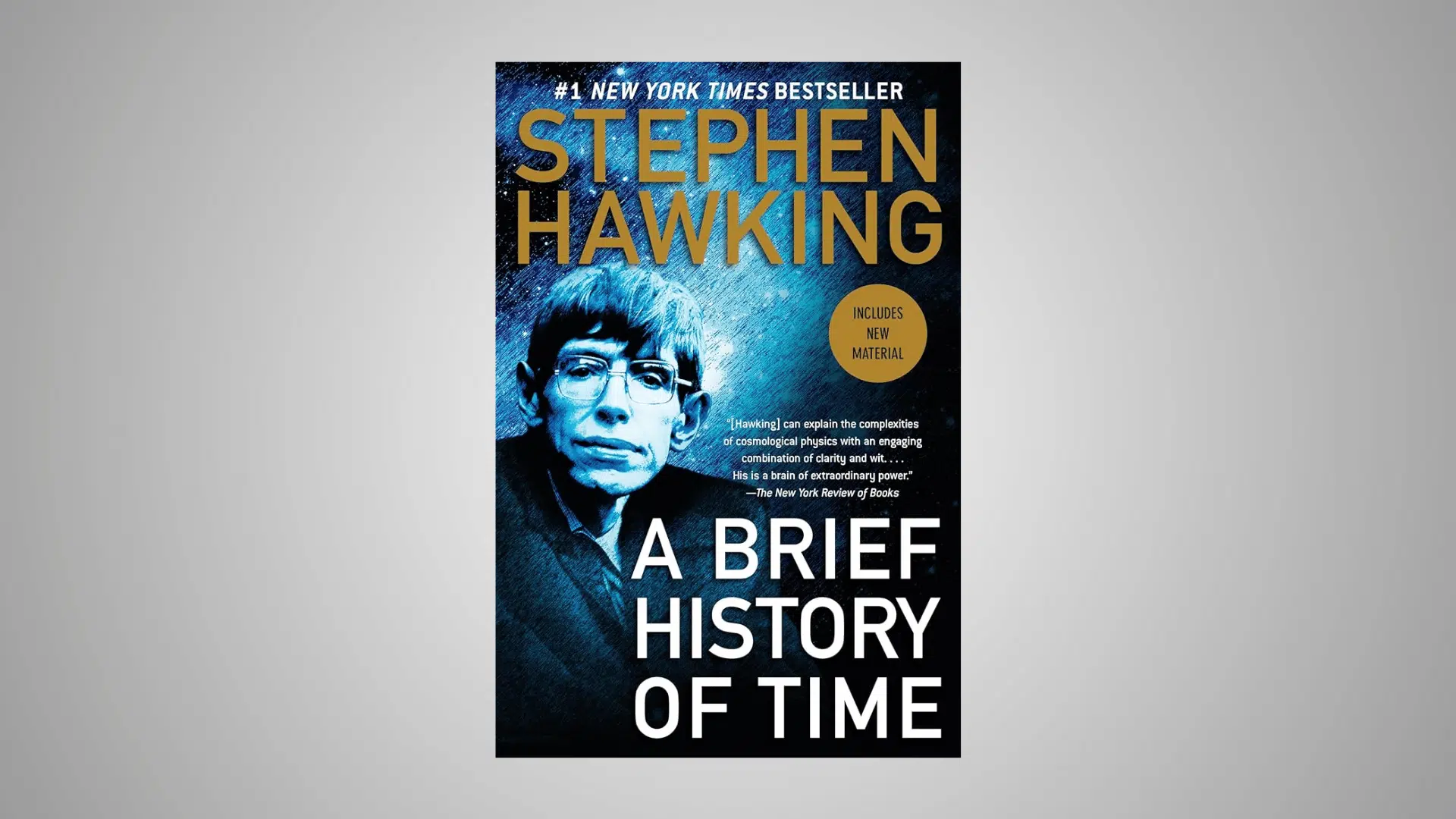
Stephen Hawking explains complex topics like black holes, the Big Bang, and time itself in simple language that non-scientists can understand.
The book tackles fundamental questions about why the universe exists and how it began, without requiring advanced math.
Hawking’s accessible writing style brings theoretical physics concepts to life through clever analogies and thought experiments.
Ratings: 4.21/5 on Goodreads
Reviews:
- “One of most famous and well written books on Physics. Recommended to the Science enthusiasts.”
- “My flight got delayed by two hours (because this is me we’re talking about) and this is my way of passing the time which does not include the spilling of blood.”
- A book that increases intelligence while making you realize how dumb you really are.
Well played, Hawkin.”
2. Cosmos by Carl Sagan
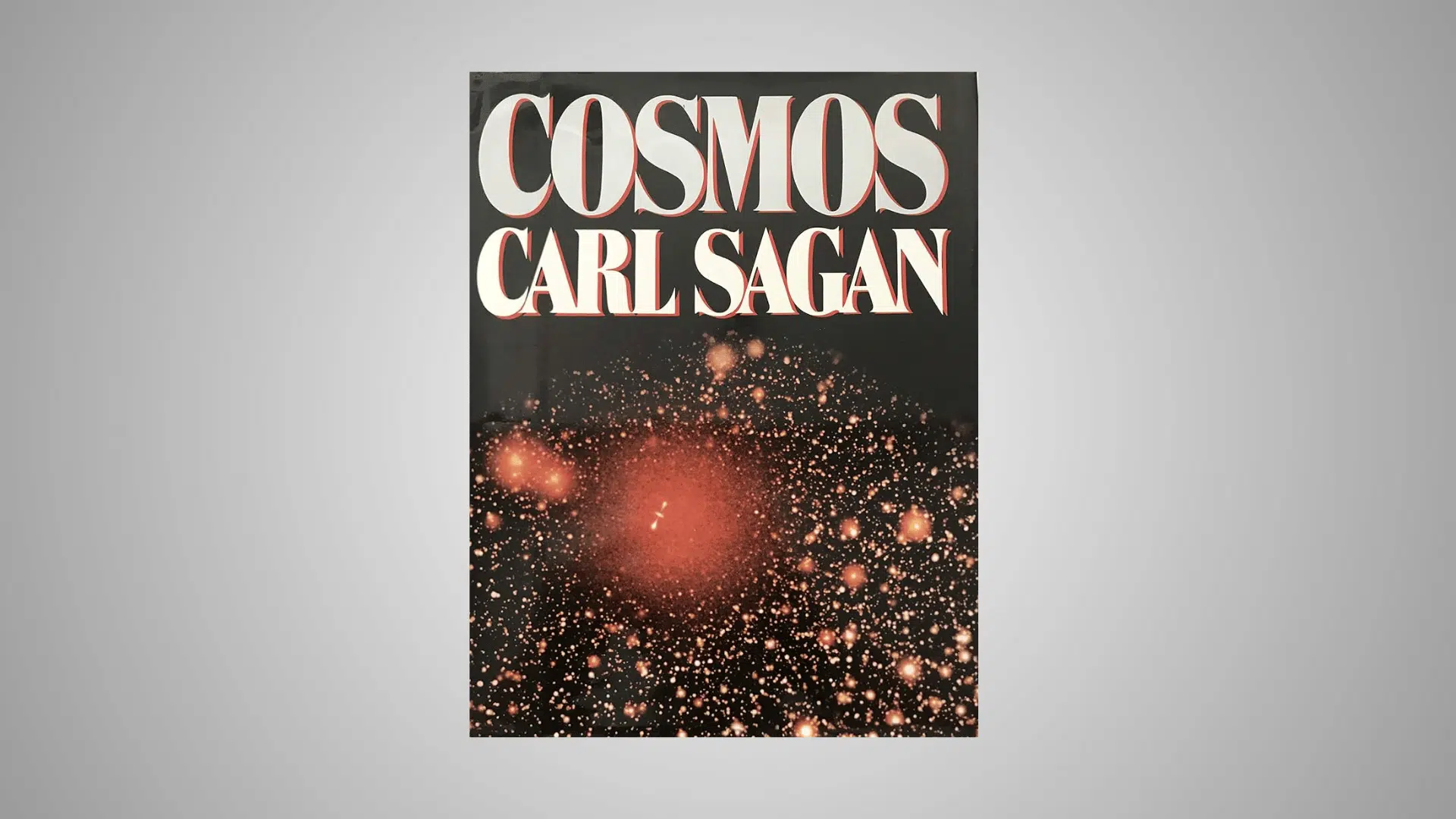
Carl Sagan takes readers on a path through space and time, exploring humanity’s place in the vast cosmos with poetic surprise.
The book covers topics from the origin of life to the search for extraterrestrial intelligence with infectious enthusiasm.
Sagan’s beautiful prose combines scientific accuracy with philosophical reflection about our cosmic connection and responsibilities.
Ratings: 4.40/5 on Goodreads
Reviews:
- “One of the greatest books on understanding the universe and our place in it. Moving and mesmerizing. No book has been more effective in making me appreciate existence.”
- “Highly recommended for people who have a little interest in astrophysics :)”
- “not enough stars in the observable universe to give this book. Rest in peace to the goat .”
3. Astrophysics for People in A Hurry by Neil deGrasse Tyson
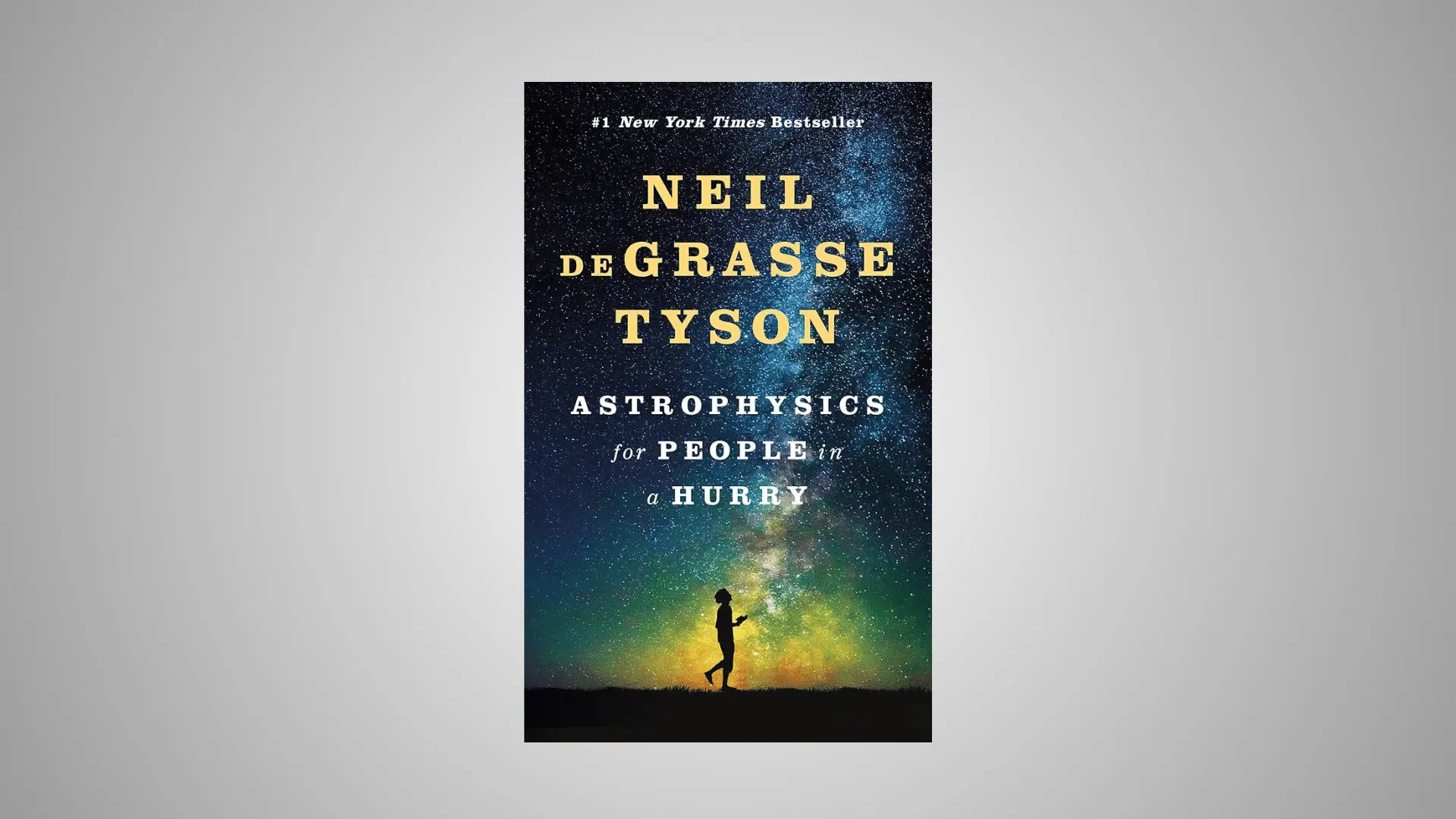
Neil deGrasse Tyson condenses the universe’s greatest mysteries into short, digestible chapters perfect for busy readers with limited time.
Each chapter tackles one big topic, like dark matter, quantum mechanics, or the formation of elements in stars, concisely.
Tyson’s conversational tone and humor make potentially intimidating subjects feel approachable and even entertaining throughout.
Rating: 4.08/5 on Goodreads.
Reviews:
- “Absolutely stunning, entertaining &a brilliant. Highly recommend the audiobook which is narrated by the author.”
- “Informative, fascinating and a bit funny. Very good.”
- “This book is a MUST! Very readable, fun and incredibly interesting. If anything I find it too short ;)”
4. The Right Stuff by Tom Wolfe
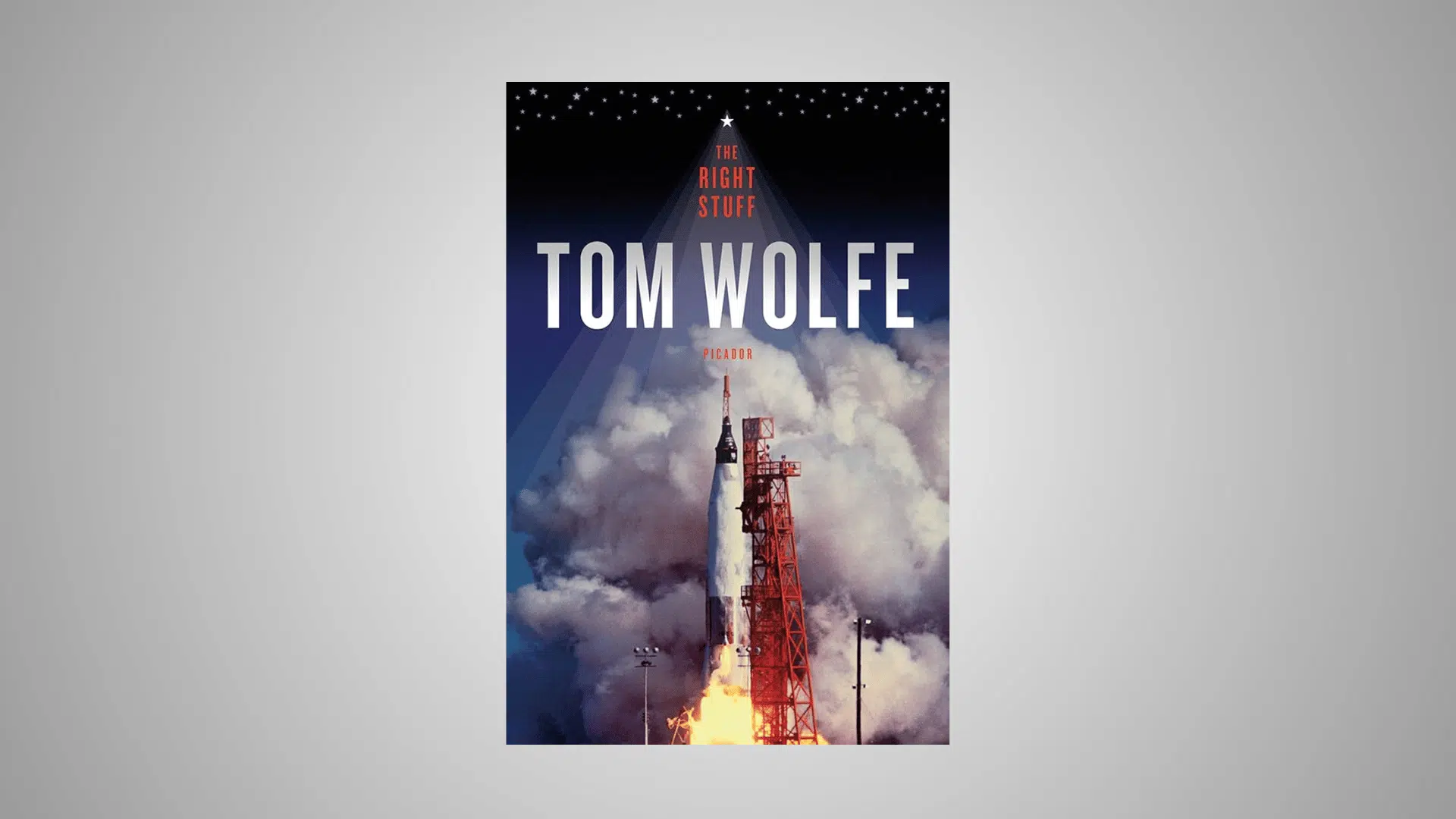
Tom Wolfe chronicles the early days of America’s space program through the lives of test pilots and original Mercury astronauts.
The book captures the courage, competition, and camaraderie among men risking their lives to push aviation and space exploration boundaries.
Wolfe’s immersive storytelling brings the danger and excitement of early space flight vividly to life through detailed reporting.
Ratings: 4.23/5 on Goodreads
Reviews:
- “I still defy anyone to read the first chapter, as Wolfe follows the path of a plane crash through the trees, and not be dazzled by his style.”
- “Journalistic goodness in a book. So good!”
- “I grew up watching the movie on local television countless times, but had never read the book. Well now I have, and I am glad. I loved it. A glimpse of an America lost to time.”
5. Pale Blue Dot by Carl Sagan
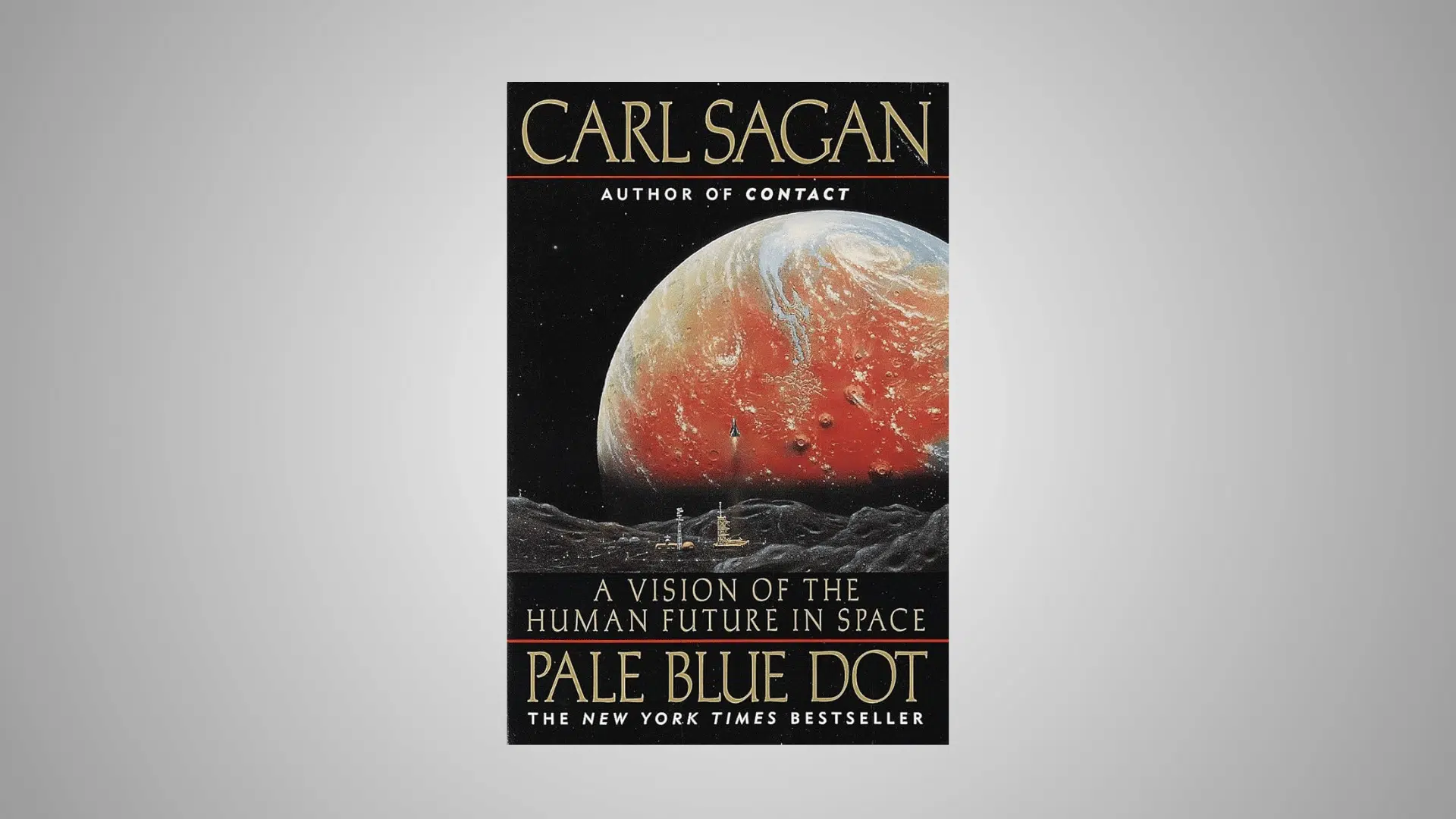
Carl Sagan reflects on humanity’s place in the cosmos, inspired by the famous Voyager 1 photograph showing Earth as a tiny speck.
The book finds our responsibility to preserve our fragile planet while pursuing our destiny as a spacefaring species.
Sagan discusses the future of space exploration, the potential for finding life elsewhere, and the philosophical implications of our cosmic insignificance.
Ratings: 4.34/5 on Goodreads
Reviews:
- “Absolutely amazing. I loved this one just as much as I loved Cosmos. Highly recommend both books to those who love Space or want to learn more about space.”
- “Made me want to go back to school for… more aerospace? Planetary science? Astronomy? Astrophysics? So much curiosity for such little time on this planet :,)”
- “Never again will I be able to see any Sci Fi movie the same way I would before reading this book.”
6. Endurance by Scott Kelly
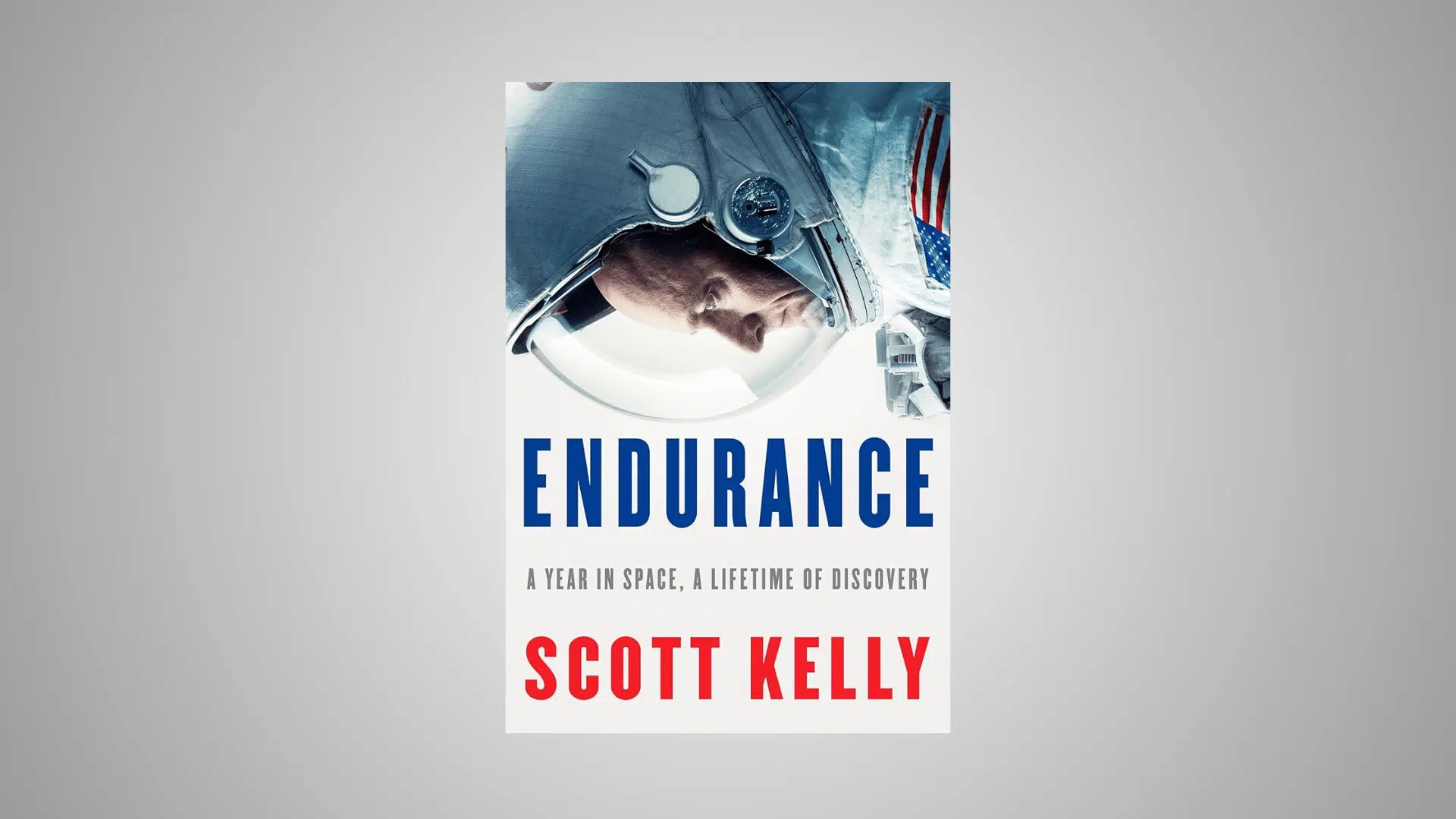
Astronaut Scott Kelly shares his experiences spending nearly a year aboard the International Space Station in Earth orbit for science.
The memoir details the physical and psychological challenges of long-duration spaceflight that future Mars missions will need to overcome.
Kelly’s honest account includes both triumphant moments and difficult struggles adapting to microgravity and isolation from family.
Ratings: 4.21/5 on Goodreads
Reviews:
- “It’s difficult not to enjoy an astronaut’s autobiography. Thanks for sharing your adventures with us, and for the sacrifices you have made in the name of science and exploration, Scott Kelly!”
- “A fascinating memoir about Scott Kelly’s childhood, career as a US Navy fighter pilot and NASA astronaut, and his year-long mission at International Space Station. I truly enjoyed it!”
- “I did not think I was going to enjoy this book as much as I did. It is a great read. Really holds your interest, and the subject–well astronauts and space WOW!”
7. The Hidden Reality by Brian Greene
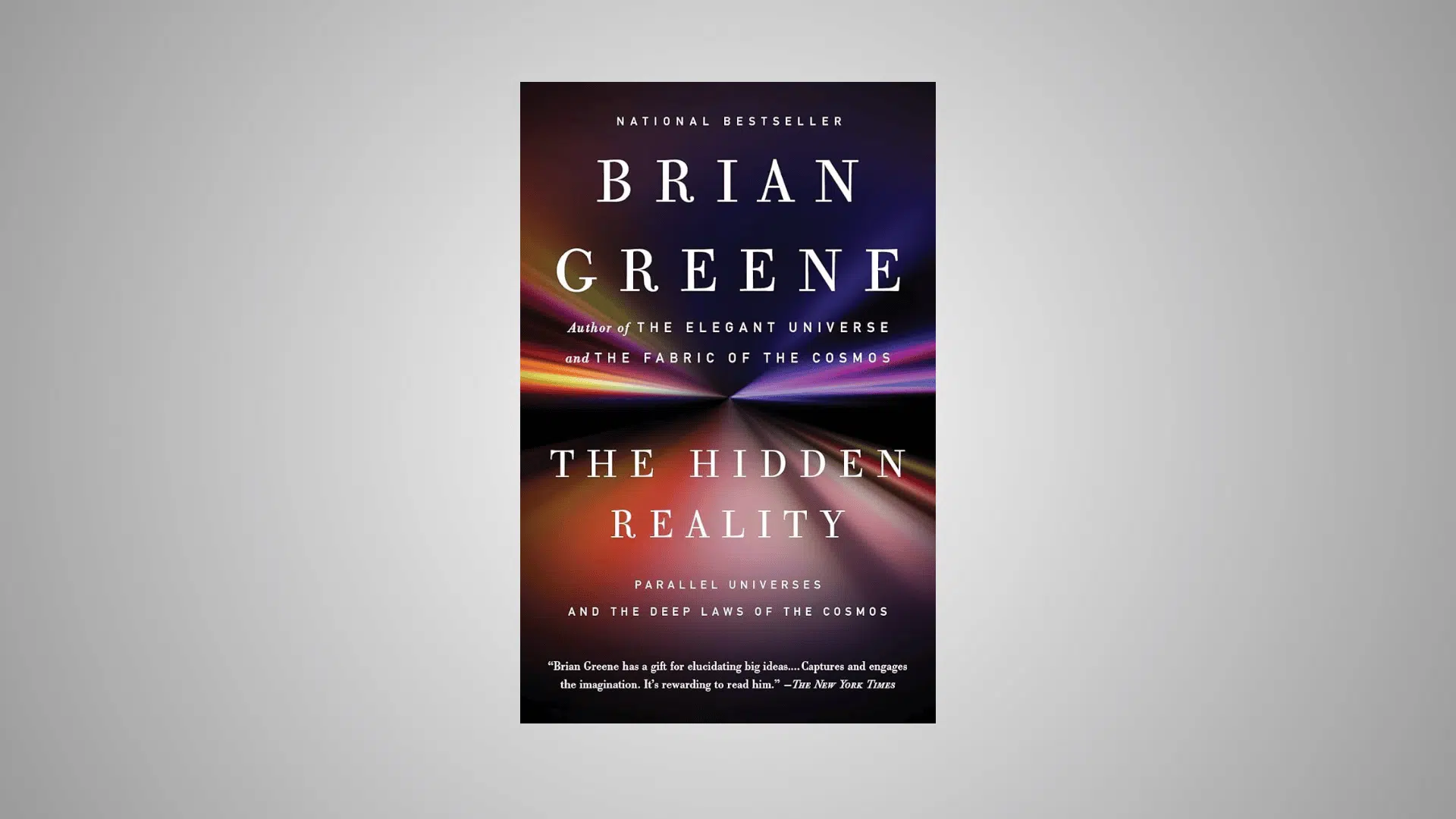
Brian Greene finds parallel universes and multiverse theories that challenge our understanding of reality’s fundamental nature and structure.
The book examines different scientific scenarios that could produce multiple universes beyond the one we observe directly.
Greene explains string theory, quantum mechanics, and cosmic inflation in ways that illuminate rather than confuse interested readers.
Ratings: 4.11/5 on Goodreads
Reviews:
- “Brian really said, “Gravity is matter’s sugar daddy,” and kept writing like no one would notice.”
- “I can’t wait for further developments in cosmology!”
- “Super fun. Detailed but approachable (and I only have a high-school level physics background).”
8. An Astronaut’s Guide to Life on Earth by Chris Hadfield
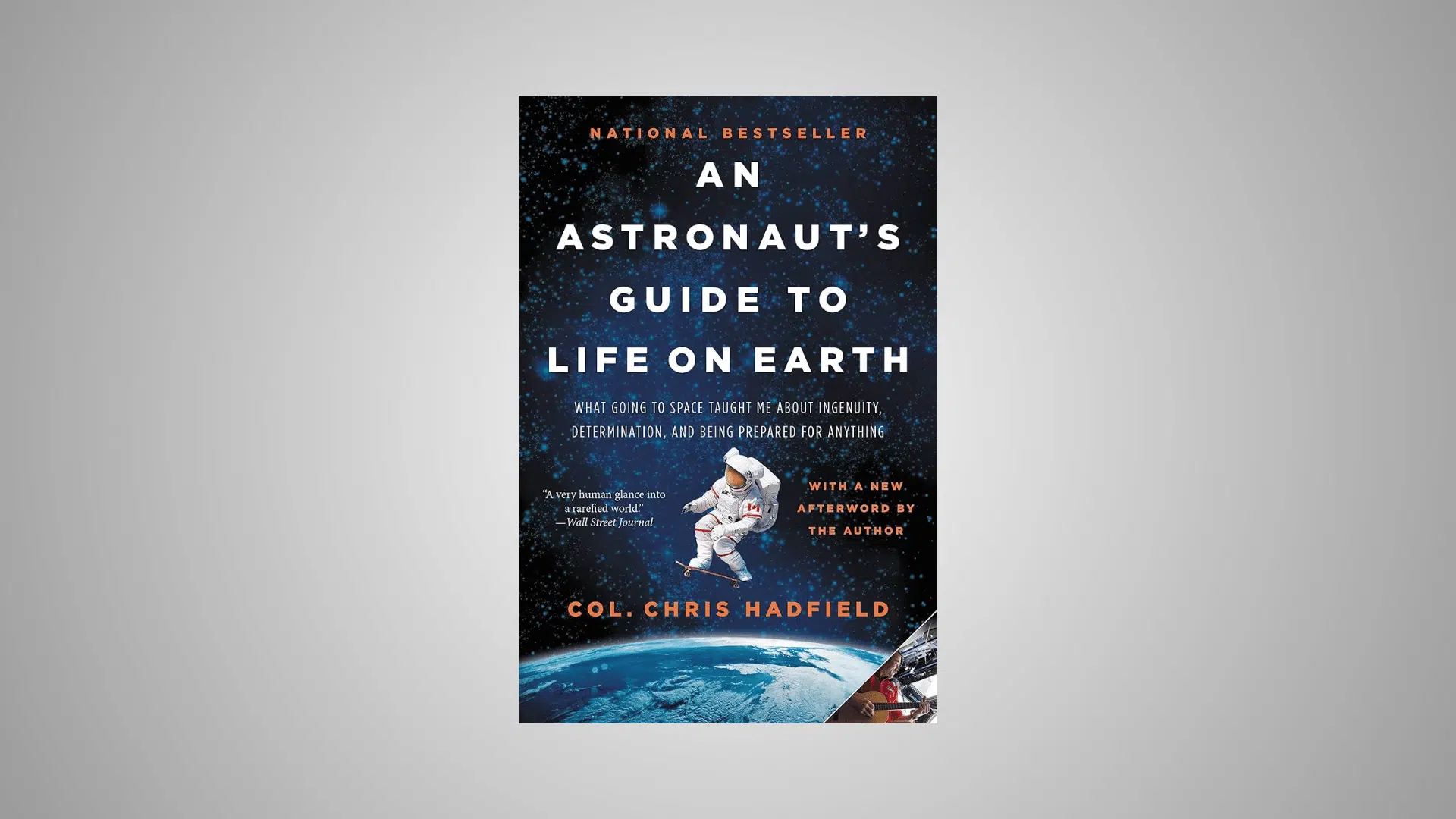
Chris Hadfield shares lessons learned during his astronaut career that apply to achieving success in any challenging field.
The book reveals how astronaut training teaches problem-solving, teamwork, and preparation that translate to everyday life situations.
Hadfield’s down-to-earth personality shines through as he describes both spectacular space experiences and mundane training exercises.
Ratings: 4.17/5 on Goodreads
Reviews:
- “The space geek in me thoroughly enjoyed this book.”
- “Great balls of fire, what a great book! Hadfield is my new hero. Well written, funny, insightful, and the perfect narrator to his own book to boot. 5 solid stars!”
- “This book filled me with joy.
I seriously consider reading it again straight away!”
9. The Elegant Universe by Brian Greene
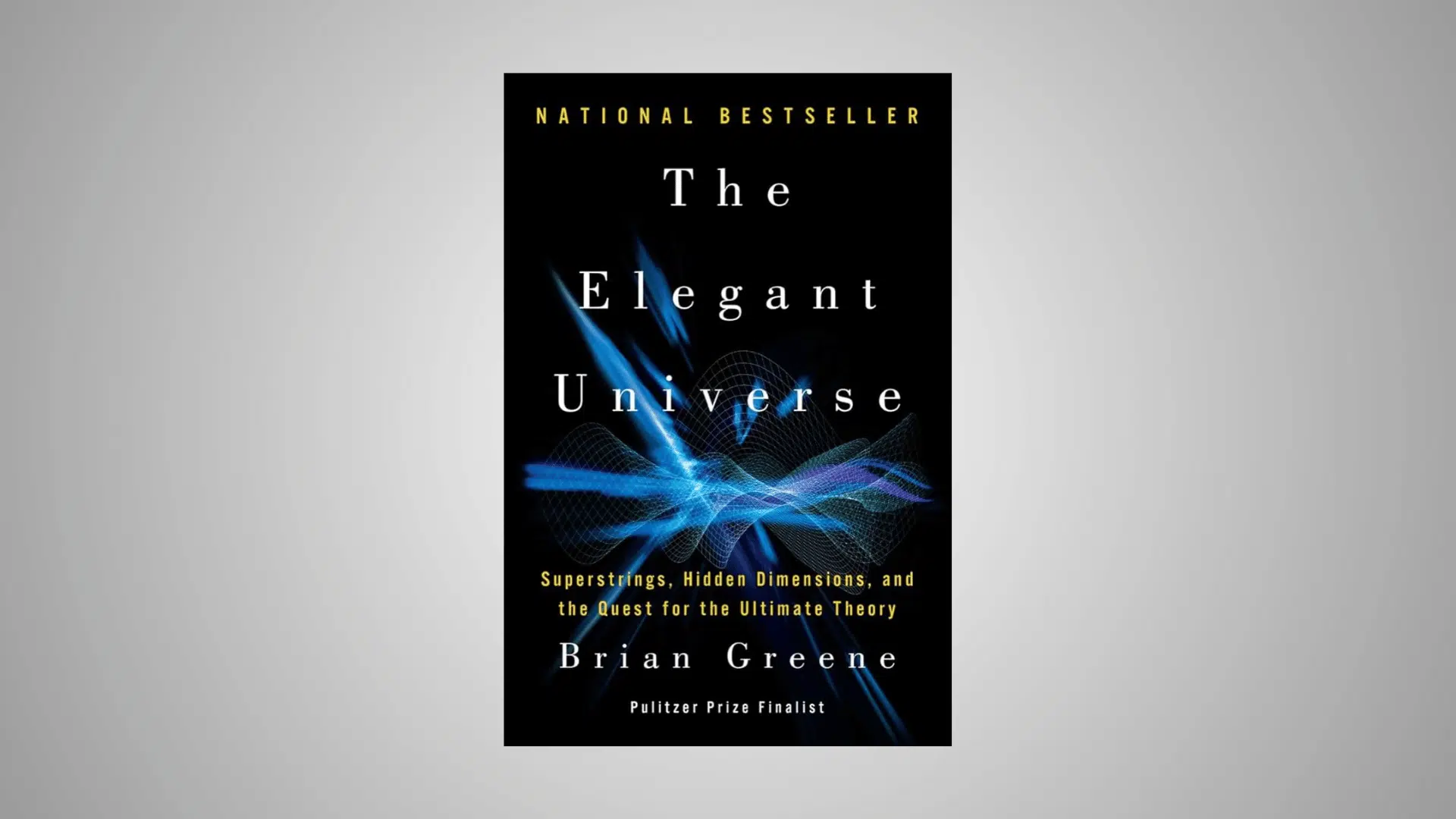
Brian Greene introduces string theory and extra dimensions that might explain the universe’s fundamental structure at quantum scales.
The book bridges the gap between Einstein’s relativity and quantum mechanics that physicists have struggled to reconcile for decades.
Greene uses analogies and examples that make abstract mathematical concepts visual and intuitive for non-specialist readers throughout.
Ratings: 4.10/5 on Goodreads
Reviews:
- “I love this book! Now I admit, I’m a maths guy, but I found dipping in and out of this to be so much fun. Complex stuff presented simply, if you like maths, you’ll most likely love this too”
- “Readers who have not discovered Greene should no waste one minute more!”
- “this book is totally amazing.”
10. Packing for Mars by Mary Roach
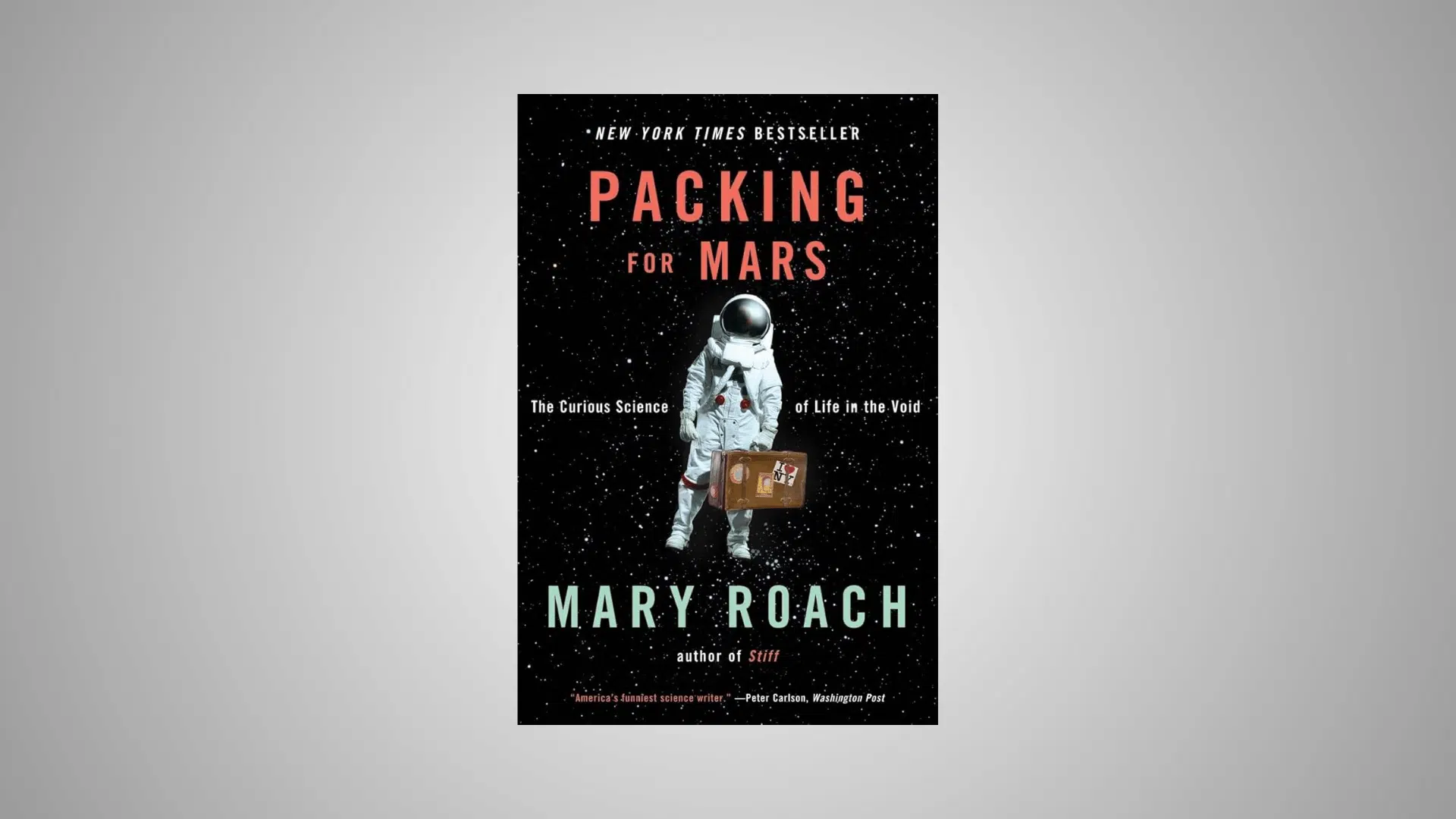
Mary Roach investigates the strange science of space travel with humor, examining everything from space toilets to motion sickness.
The book reveals unglamorous realities of living in space that NASA doesn’t typically highlight in public presentations.
Roach’s conversational style and witty observations make technical subjects entertaining while remaining informative and accurate throughout.
Ratings: 3.95/5 on Goodreads
Reviews:
- “I will read anything by Mary Roach. Of course, my favorite parts in this book were about farting and pooping in a space suit. Hilarious.”
- “Very interesting book about space. Going to the bathroom in space, eating in space, bone deteriorating in space. As always, Roach is funny and informative.”
- “Well this is a part of the space program that no one talked about… fascinating and some times gross, but always funny.”
11. Welcome to the Universe by Neil deGrasse Tyson, Michael Strauss, and J. Richard Gott
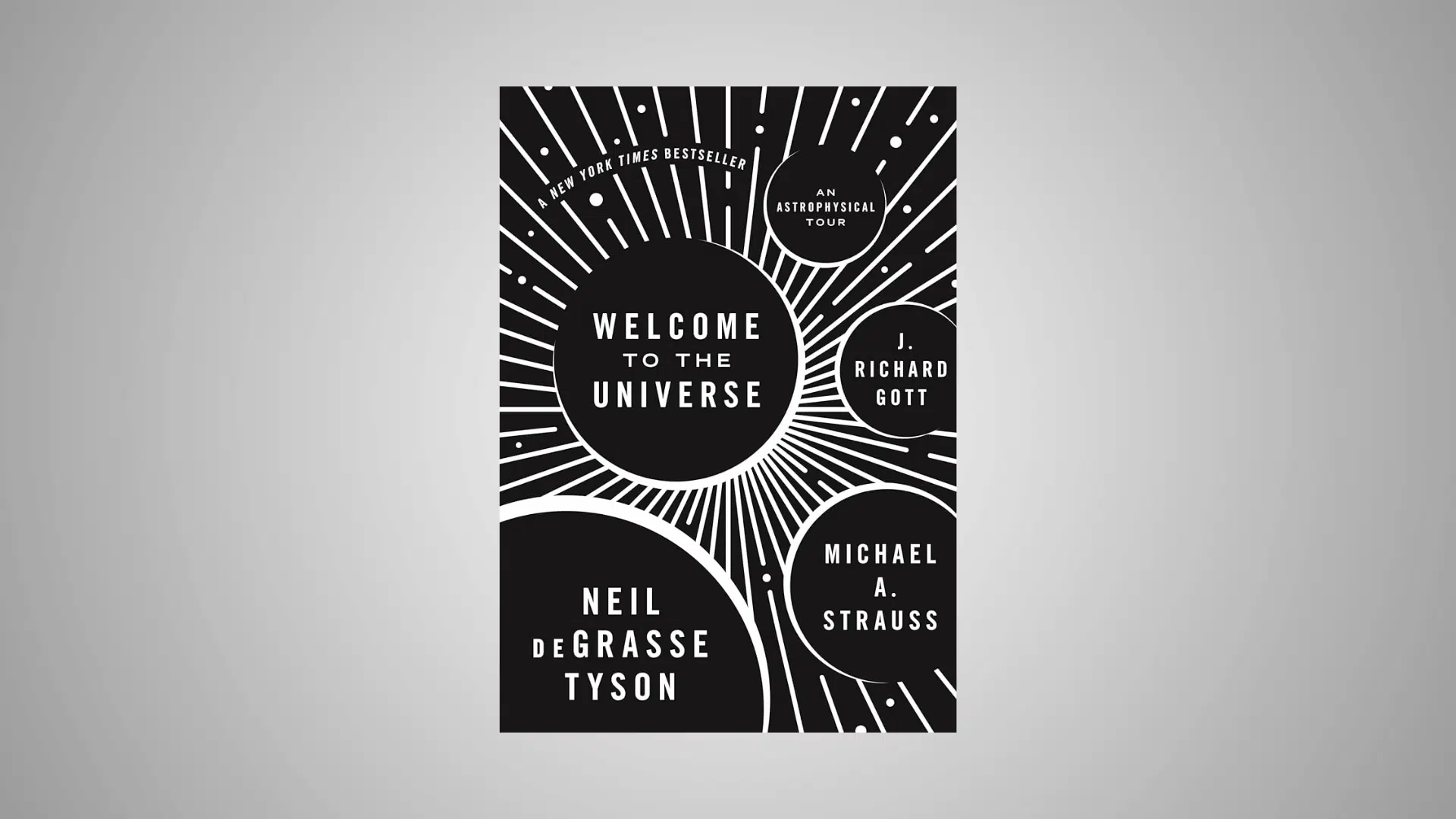
Three renowned astrophysicists collaborate to explain the universe from planets to cosmology in this comprehensive but accessible introduction.
The book covers a broad range of topics, including exoplanets, black holes, galaxies, and the universe’s ultimate fate.
Each author brings unique expertise to different sections, providing well-rounded coverage of modern astronomy and astrophysics.
Ratings: 4.25/5 on Goodreads
Reviews:
- “This is probably the best pop-physics book that I’ve read. A great summary of modern astrophysics (and physics in general) plus a lot of good history.”
- “If you want to widen your imagination of the universe, then you should read this mind-blowing book.”
- “As a scientist, you must embrace the inconstancy of knowledge. You learn to love the questions themselves.”
12. The Fabric of the Cosmos by Brian Greene
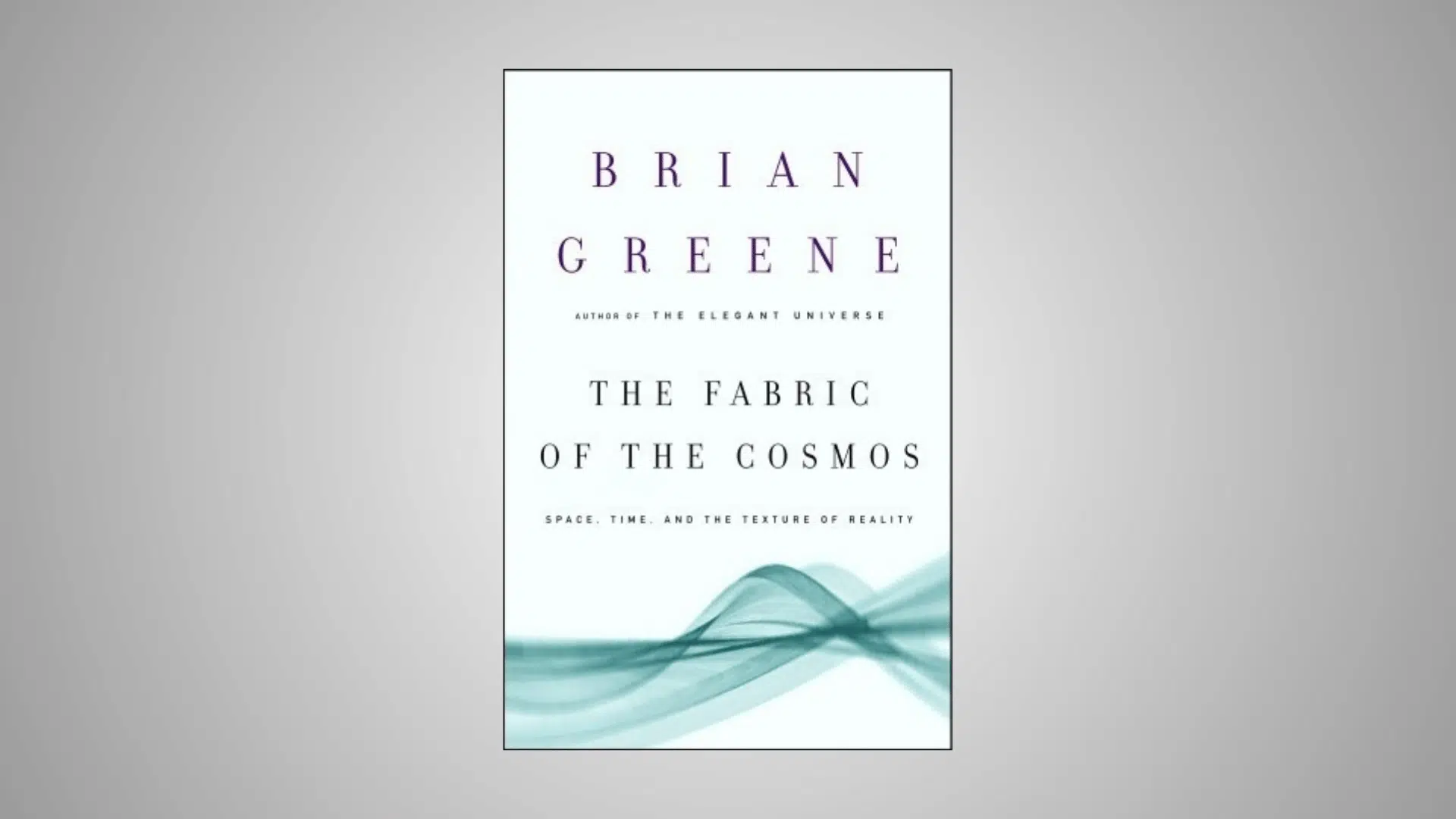
Brian Greene finds space, time, and the texture of reality through engaging explanations of modern physics discoveries and theories.
The book examines how our everyday perception of reality differs dramatically from what physics reveals about the universe’s nature.
Greene discusses quantum entanglement, time travel possibilities, and even if time itself might be an illusion that physicists are finding.
Ratings: 4.13/5 on Goodreads
Reviews:
- “As always, Brian Greene delivers. This, his second of three books, is more strictly about cosmology and the physics of space time itself. Fantastic and inspiring.”
- “One of the pop-sci books I have read, with the best explanations of string theory, hidden dimensions, and the scientific struggle to understand the cosmos.”
- “Perfect for the curious mind looking for a much more in-depth treatment of the subject than most popular science books offer.”
13. The Overview Effect by Frank White
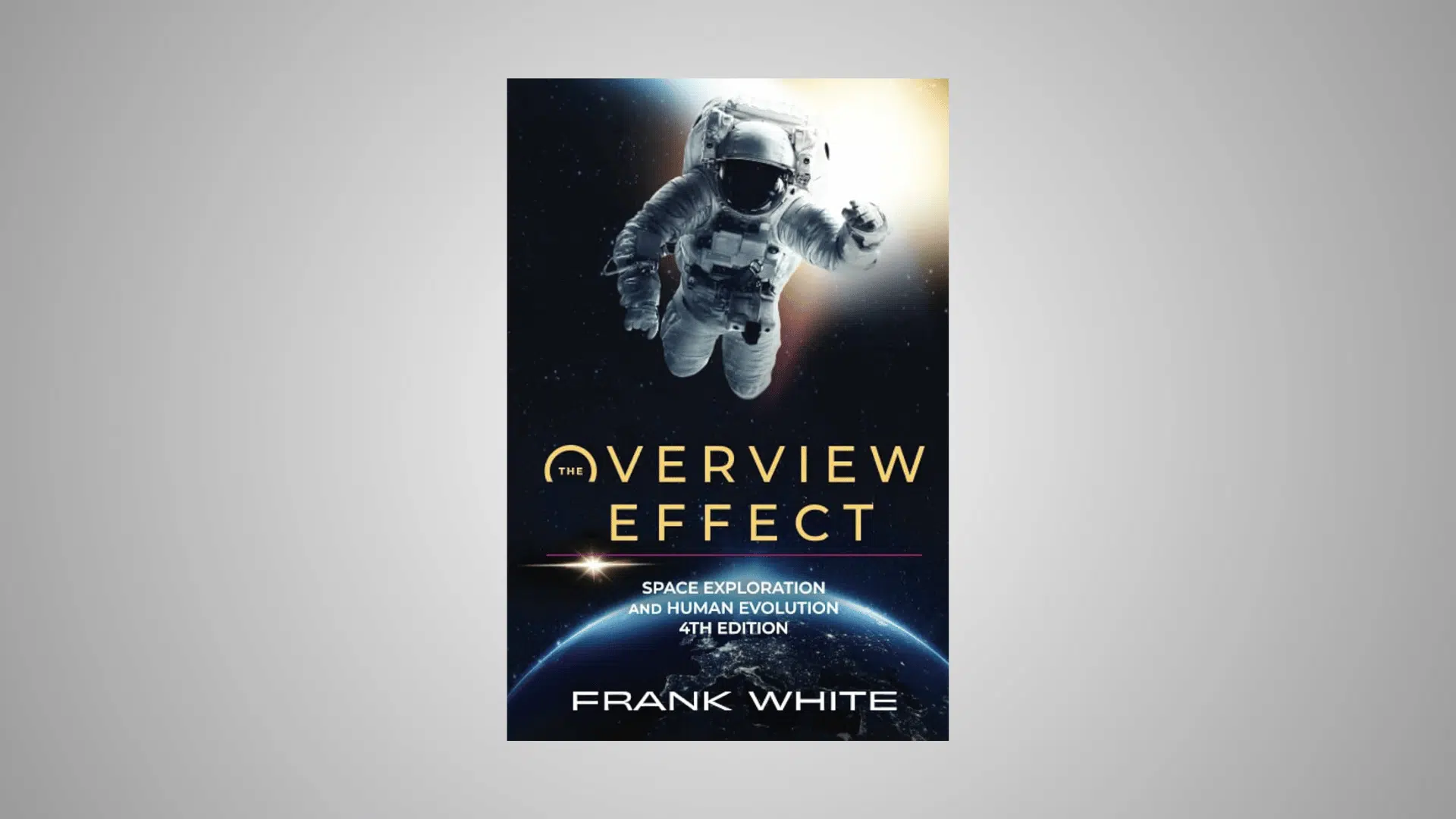
Frank White examines the profound psychological impact astronauts experience when viewing Earth from space for the first time.
The book documents how seeing Earth as a fragile sphere in the cosmic void changes astronauts’ perspectives permanently.
White finds that this shift in consciousness could help solve global problems if more people experienced this perspective.
Ratings: 3.64/5 on Goodreads
Reviews:
- “Liked the new ideas and insights based on real accounts.
did not like the repetitive writing style” - “Humanity traveled into space and got perspective of what it means to live on Earth.”
- “An amazing book!”
14. The Martian by Andy Weir
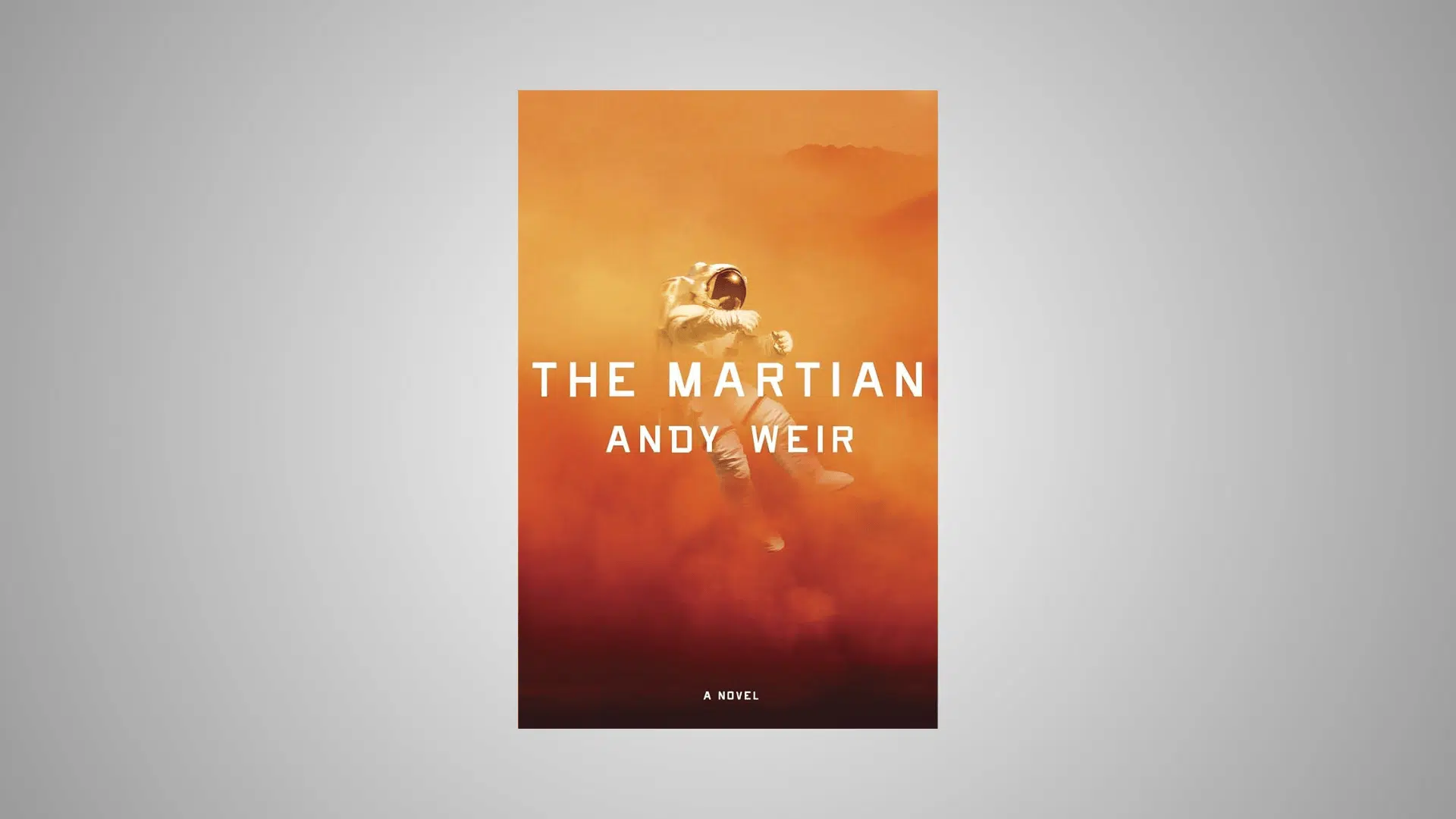
Andy Weir’s novel follows astronaut Mark Watney’s struggle to survive alone on Mars after being left behind accidentally.
The story combines realistic science with humor as Watney uses ingenuity and botanical knowledge to stay alive.
Weir meticulously researched actual Mars conditions and potential survival strategies that make the fiction feel scientifically plausible.
Ratings: 4.42/5 on Goodreads
Reviews:
- “I go so emotional at the end, so good!”
- “There was only one thing going through my mind during the first several dozen pages of the novel.
I’m reading Heinlein.” - “It’s been a long time since I have been THIS excited about a book. Wow. I loved it.”
15. The First Three Minutes by Steven Weinberg
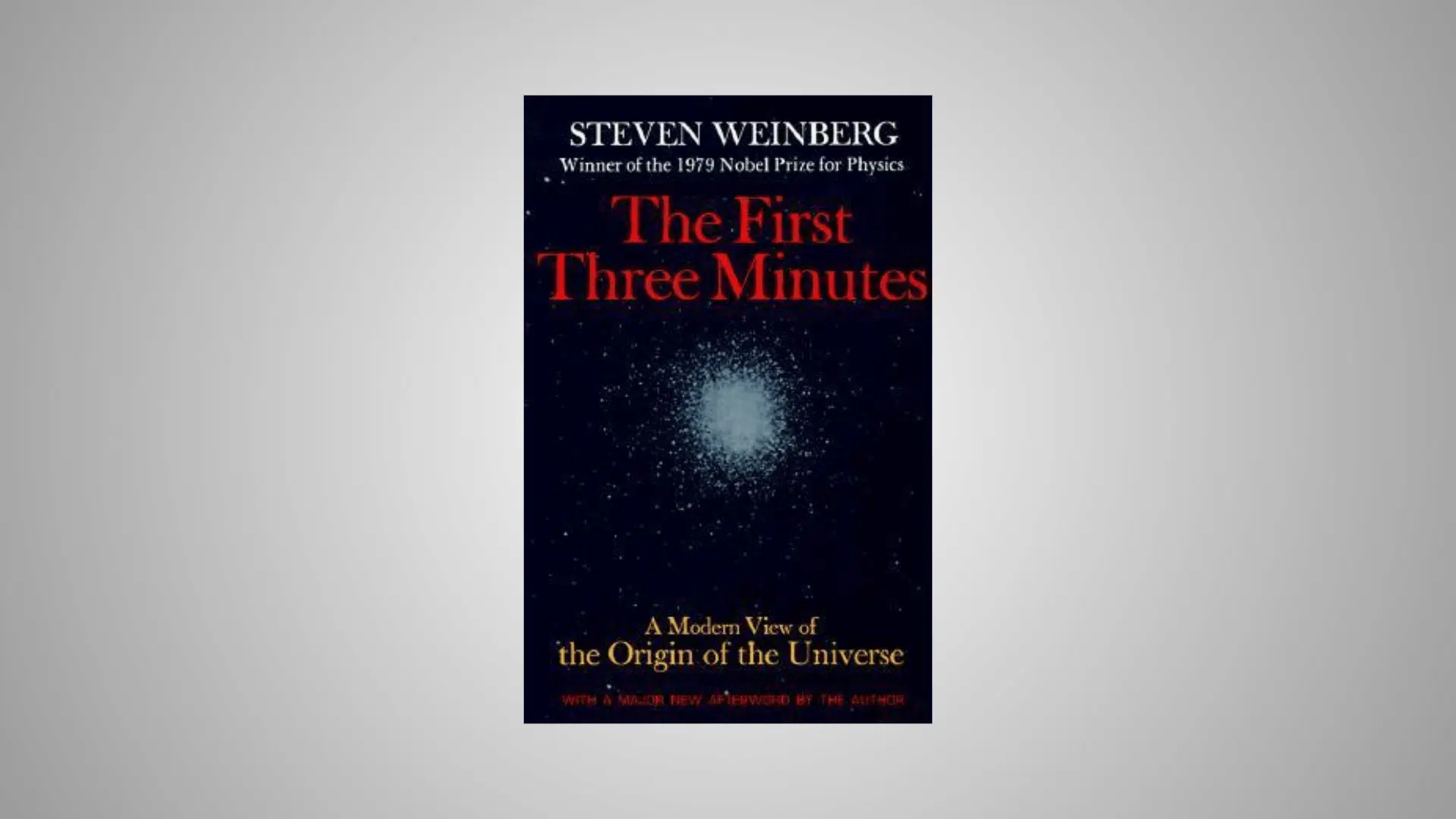
Steven Weinberg explains what happened during the universe’s first moments after the Big Bang with remarkable clarity and precision.
The book walks readers through the physics of cosmic expansion, particle formation, and element creation in those crucial early minutes.
Weinberg’s Nobel Prize-winning expertise shows as he explains complex nuclear physics in ways non-specialists can follow and understand.
Ratings: 4.10/5 on Goodreads
Reviews:
- “This is my second time reading this. Still magical.”
- “If you want to know what happened right after big bang, how matter arrived in the first place and fate of the universe, this is the right book. Might be the best book on early history of the universe.”
- “Read this book long back. Excellent book on the subject.”
16. Black Holes and Time Warps by Kip Thorne
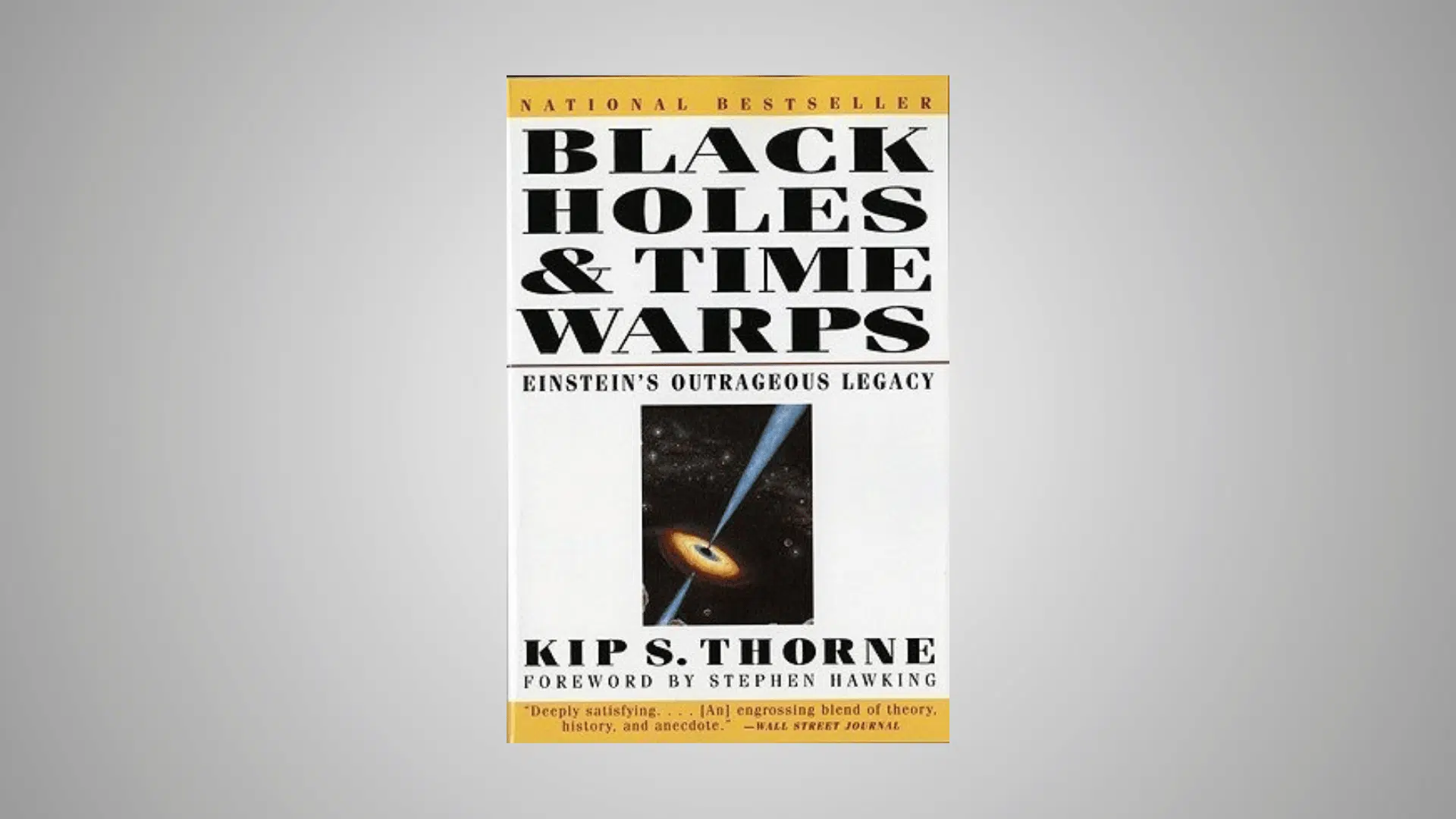
Kip Thorne, a leading theoretical physicist, finds black holes, wormholes, and time travel possibilities based on Einstein’s theories.
The book blends rigorous science with historical accounts of how physicists developed these mind-bending concepts over decades.
Thorne explains the mathematical concepts behind general relativity using diagrams and analogies that illuminate rather than confuse readers.
Ratings: 4.23/5 on Goodreads
Reviews:
- “I had goosebumps multiple times. This book (along with Cosmos by Sagan) made me miss lecture halls and studying physics at uni.”
- “Highly recommend. Fascinating to read about the nature of the universe and the fundamental laws of physics when they are pushed to their extremes.”
- “Well written and mind expanding. Kip Thorne is a great writer in addition to being a great physicist.”
17. Coming of Age in the Milky Way by Timothy Ferris
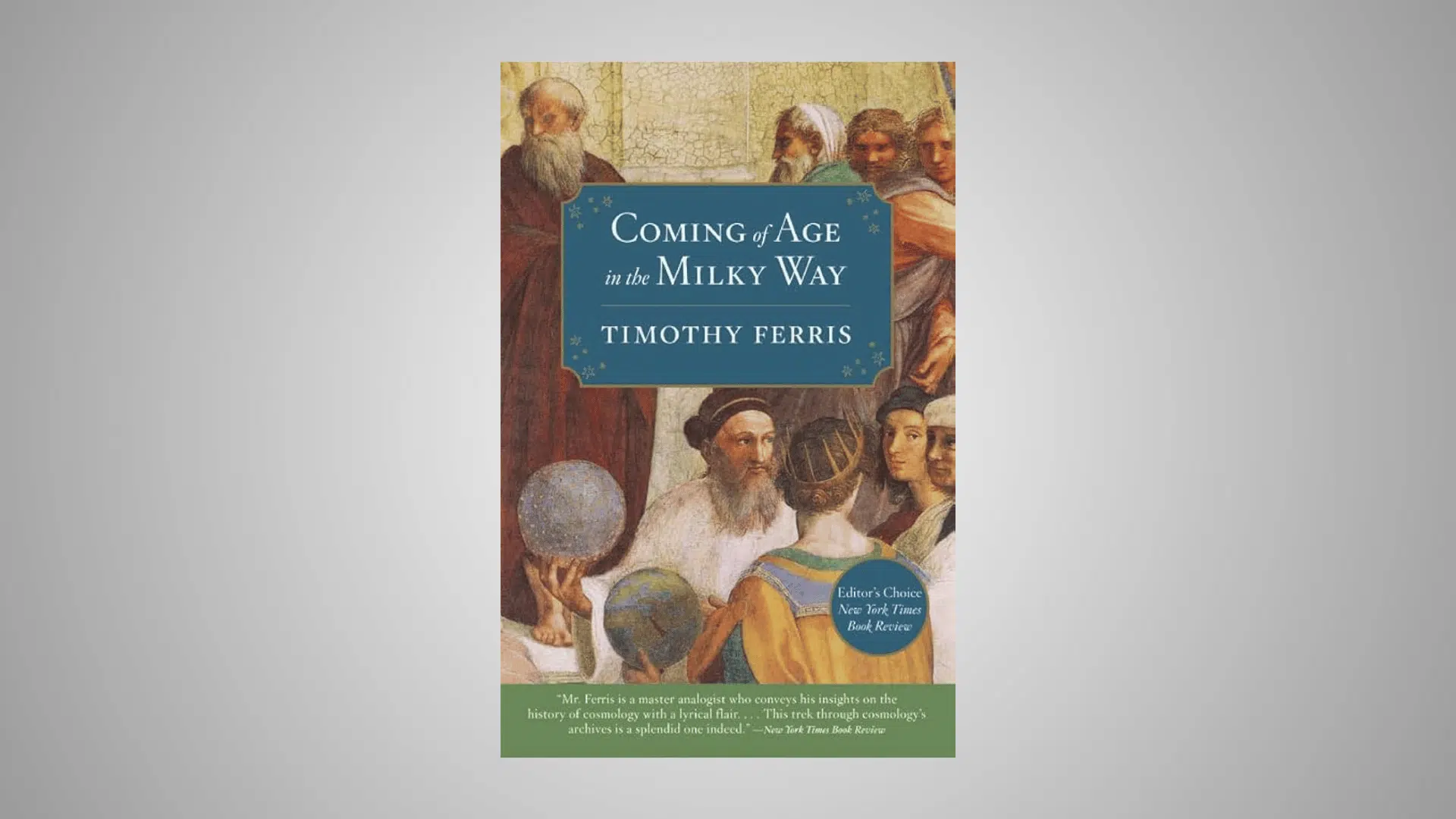
Timothy Ferris traces humanity’s growing understanding of the cosmos from ancient times through modern scientific breakthroughs and discoveries.
The book profiles key figures whose observations and theories gradually revealed the universe’s true scale and nature.
Ferris writes with literary grace about scientific concepts, making the history of astronomy read like a story.
Ratings: 4.16/5 on Goodreads
Reviews:
- “A must read for anyone interested in the history of the science of the cosmos.”
- “Anybody who is in the camp of older histories being outdated with recent records always updating information would be missing out by disregarding a classic like this.”
- “Very well written. Includes interesting stories about the scientists and their lives.”
18. Longitude by Dava Sobel
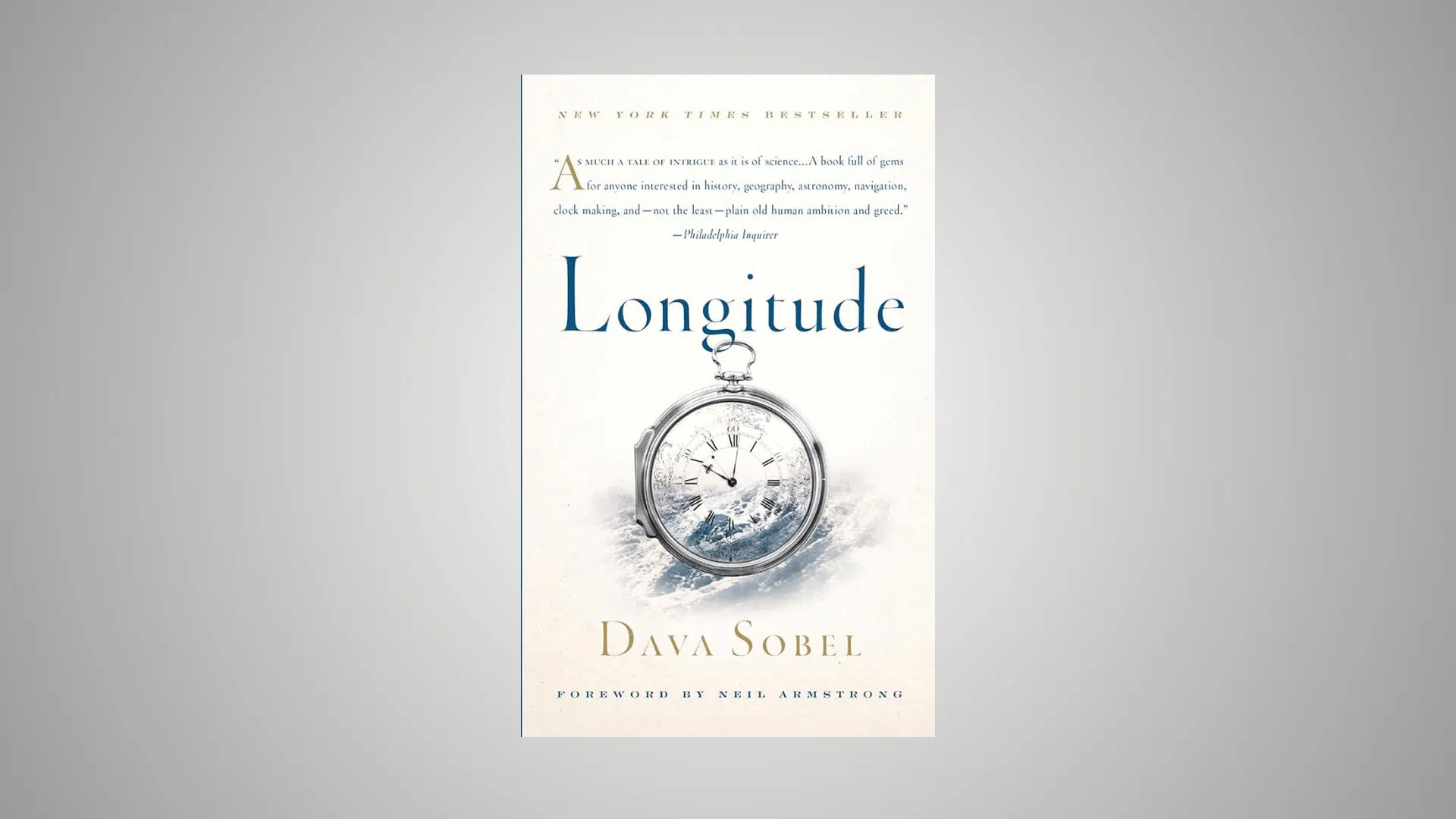
Dava Sobel tells the story of clockmaker John Harrison’s quest to solve the problem of longitude for sailors.
While not strictly about space, the book illuminates how astronomical observations helped sailors determine their position at sea.
The narrative shows how practical problems drive scientific and technological innovation that eventually enables space exploration capabilities.
Ratings: 3.99/5 on Goodreads
Reviews:
- “An excellent piece of literary work. Smart, concise, digestable, organized and fun. A must read for all, especially scientific non-fiction lovers.”
- “I read this in high school (so no detailed review) and remember enjoying it immensely.”
- “Very interesting, and very nicely written.”
19. Rocket Men by Robert Kurson
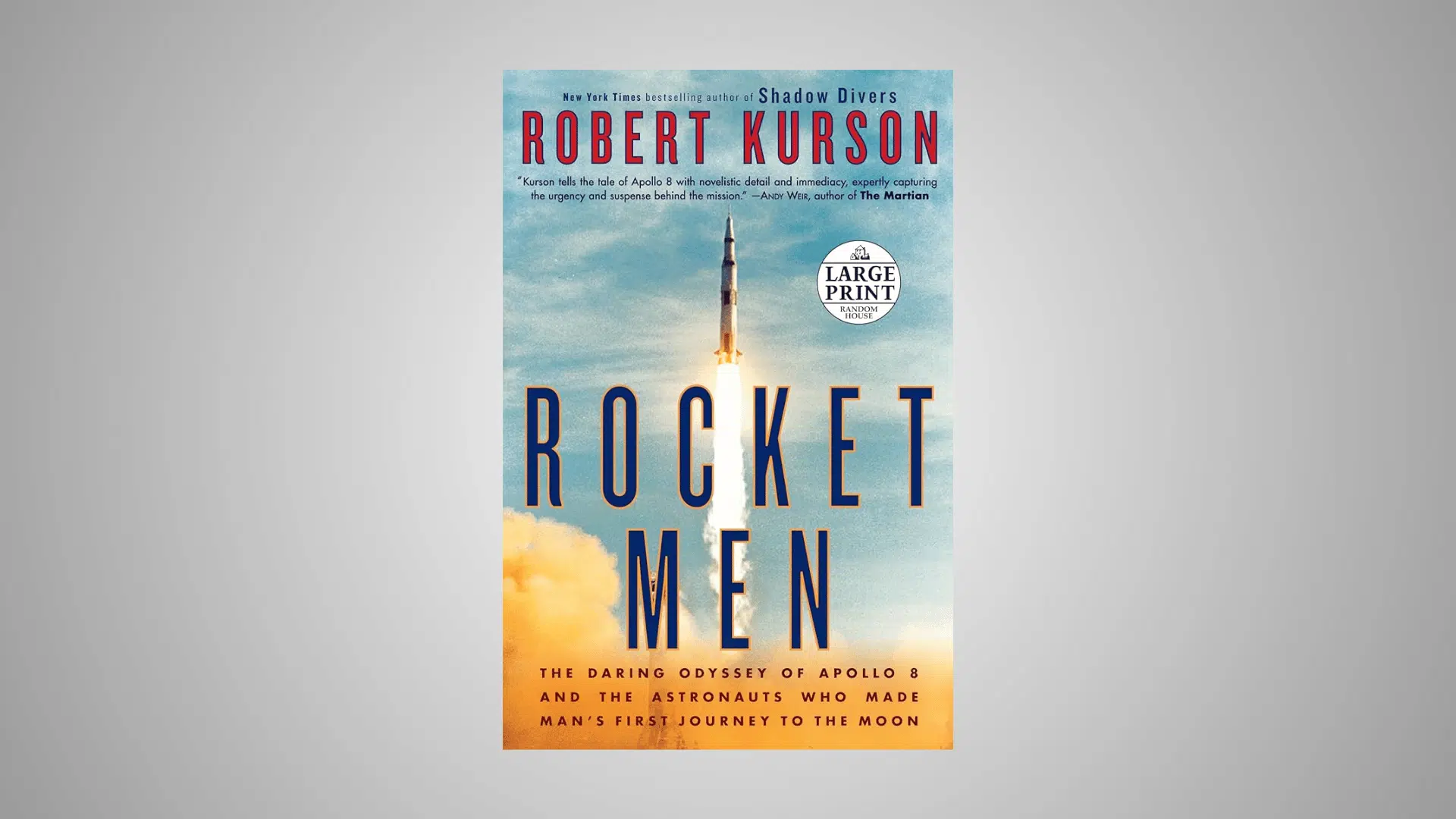
Robert Kurson chronicles the Apollo 8 mission, the first human flight to orbit the Moon during Christmas 1968.
The book captures the enormous risks and historic significance of leaving Earth orbit for deep space exploration.
Kurson’s detailed research brings astronauts Frank Borman, Jim Lovell, and Bill Anders to life through personal stories.
Ratings: 4.53/5 on Goodreads
Reviews:
- “Super compelling storytelling. Kept me engaged and interested from start to finish.”
- “Excellent and very detailed account of Apollo 8. If you’re not super interested in the space race and moon missions, it might come off as a little long-winded.”
- “The perfect book to read (listen) during a national crisis to remind oneself what is possible.”
20. The Grand Design by Stephen Hawking and Leonard Mlodinow
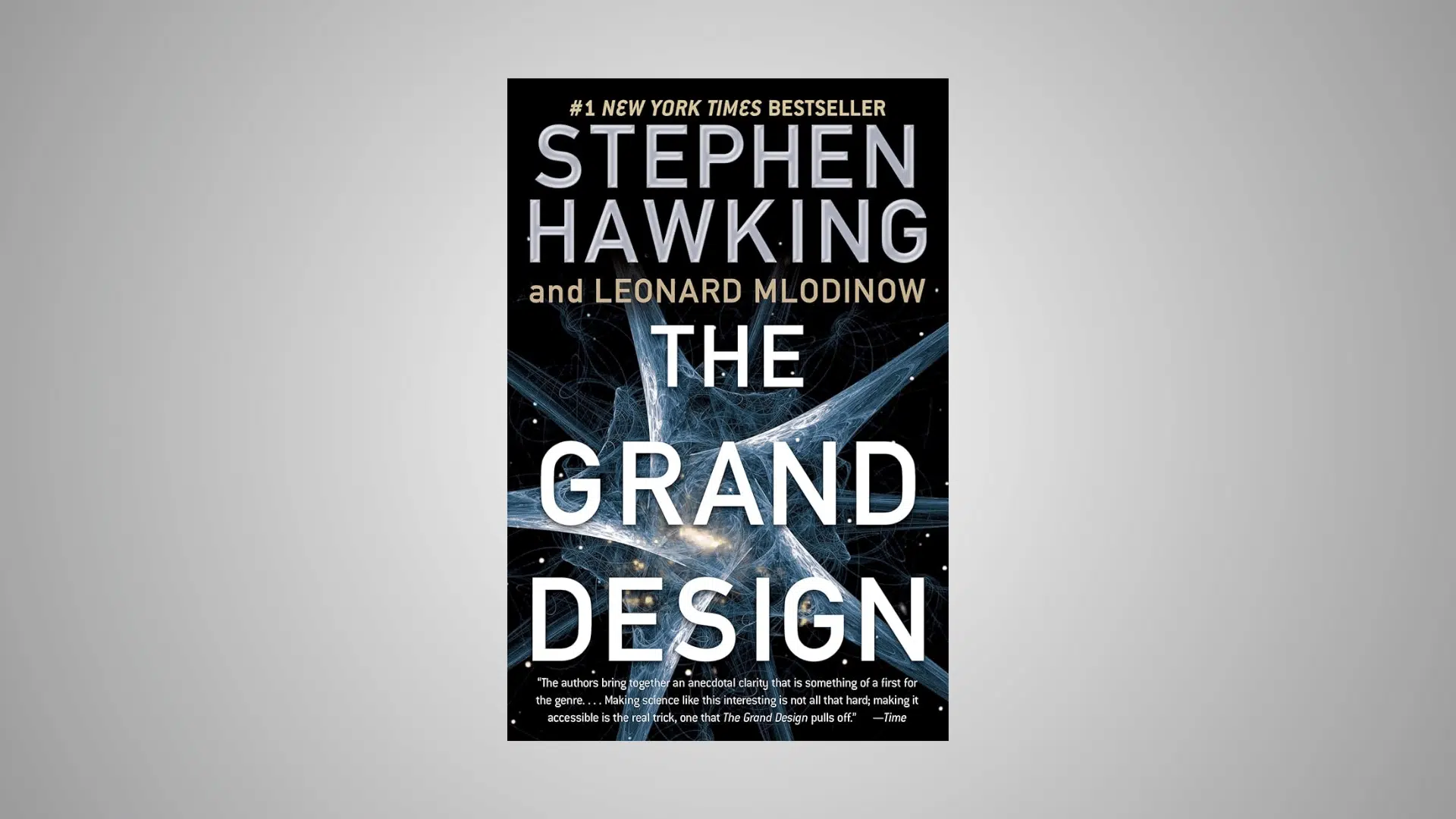
Stephen Hawking and Leonard Mlodinow find ultimate questions about why the universe exists and why laws of nature take their particular form.
The book presents M-theory as a potential framework for understanding reality’s fundamental nature without requiring supernatural explanations.
The authors discuss how multiple universes might exist, each with different physical laws determined by quantum fluctuations.
Ratings: 4.06/5 on Goodreads
Reviews:
- “A bit more philosophical than his other books. He also makes grander claims here than elsewhere.”
- “It’s a marvelous book, but unfortunately kinda difficult to understand cause it contains a lot of technical terms.”
- “Haven’t seen a book describing intricate scientific subjects in simple words…”
21. Space Chronicles by Neil deGrasse Tyson
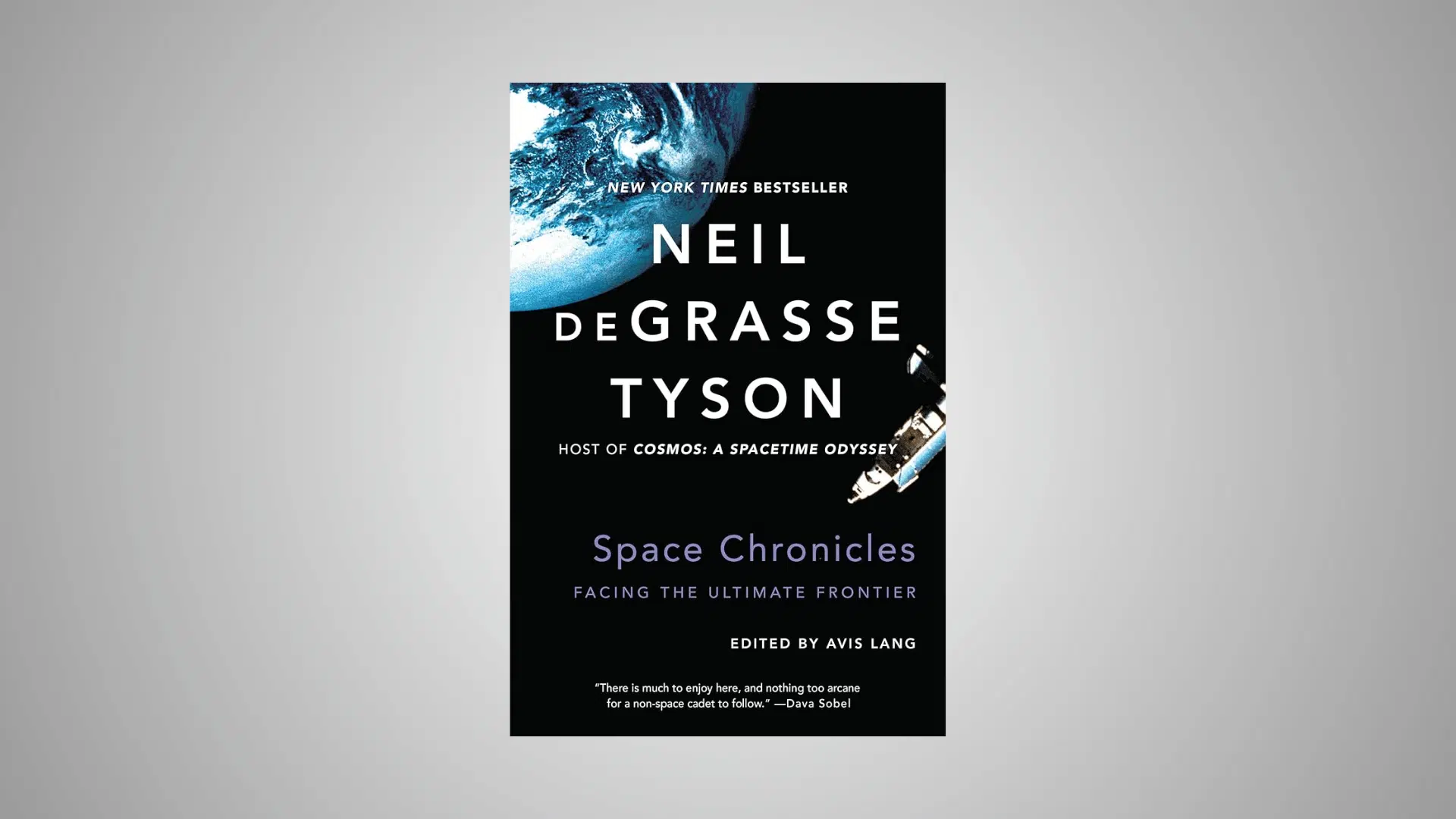
Neil deGrasse Tyson advocates for continued space exploration while examining NASA’s history and future possibilities for human spaceflight.
The book compiles Tyson’s essays and speeches about why investing in space programs benefits society beyond scientific knowledge.
Tyson argues passionately that space exploration inspires innovation, drives economic growth, and represents humanity’s best aspirations for the future.
Ratings: 3.99/5 on Goodreads
Reviews:
- “The book is very awesome.”
- “His passion for science and exploration comes through in his writing just as well as listening to him speak!”
- “This book is totally gread.”
Other Space Books You Can Prefer
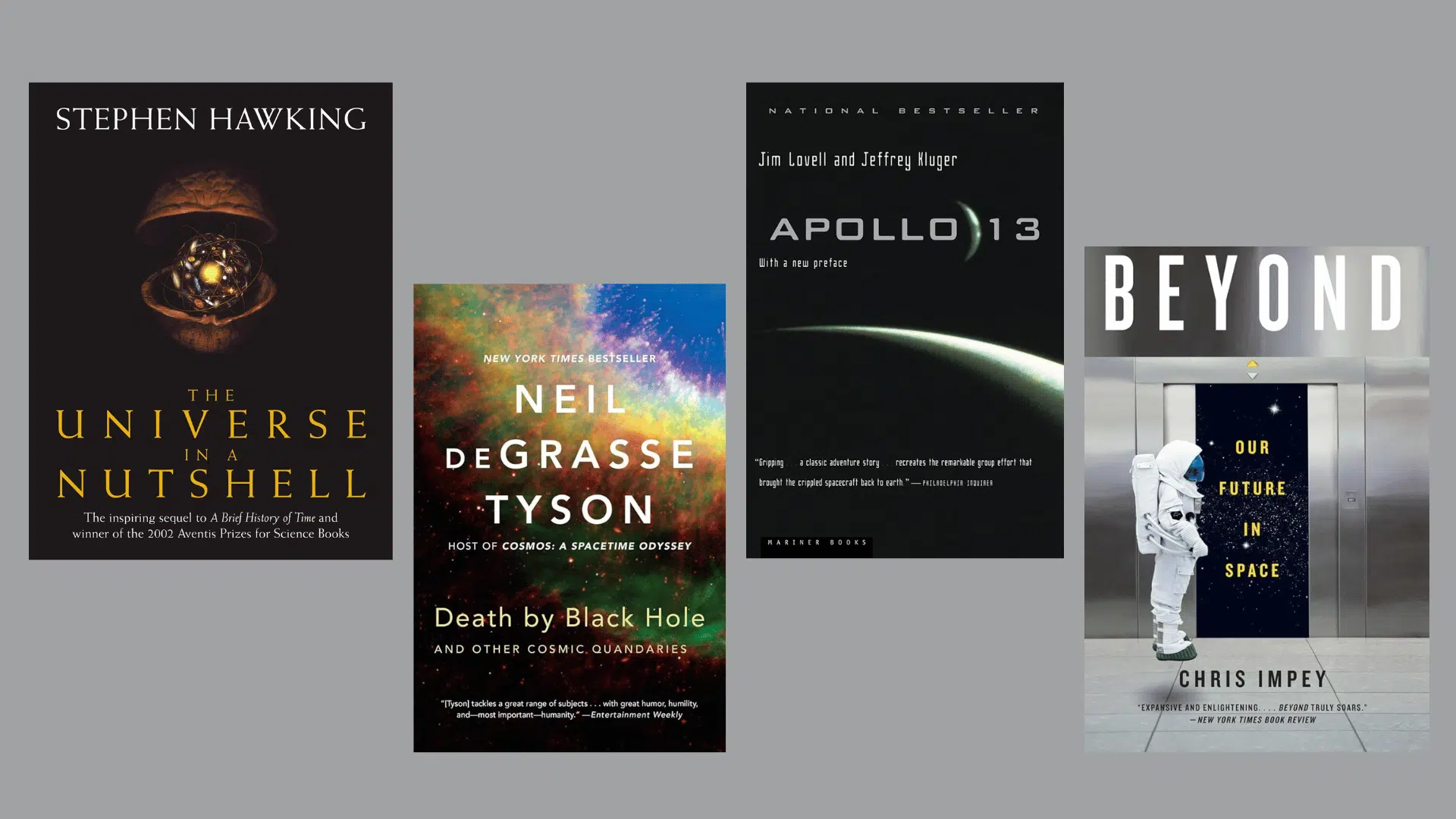
Here are other attractive books worth exploring if you’re seeking a fresh cosmic path and perspectives.
22. The Universe in a Nutshell by Stephen Hawking
Hawking follows up his earlier work with beautifully illustrated explanations of physics advances, including string theory and cosmic inflation concepts throughout.
23. Death by Black Hole by Neil deGrasse Tyson
Tyson finds ways the universe could kill you with characteristic humor while teaching genuine astrophysics concepts and cosmic dangers clearly.
24. The Day We Found the Universe by Marsha Bartusiak
Bartusiak chronicles Edwin Hubble’s revolutionary discoveries proving galaxies exist beyond the Milky Way, expanding our cosmic understanding dramatically forever.
25. Apollo 13 by Jim Lovell and Jeffrey Kluger
Lovell recounts the near-disastrous Moon mission that became NASA’s finest hour through ingenuity and determination under extreme pressure and danger.
26. Rocket Boys by Homer Hickam
Hickam’s memoir describes how building rockets in his West Virginia hometown led to a career with NASA, inspiring readers everywhere.
27. The Planets by Dava Sobel
Sobel finds each planet through mythology, history, and science, blending cultural stories with astronomical facts, creating engaging planetary portraits throughout.
28. Parallel Worlds by Michio Kaku
Kaku examines multiverse theories, and even if parallel universes might exist according to cutting-edge physics and cosmology research findings today.
29. Origins by Neil deGrasse Tyson and Donald Goldsmith
Tyson and Goldsmith trace cosmic evolution from the Big Bang through planet formation, explaining how the universe created conditions supporting life eventually.
30. The Case for Mars by Robert Zubrin
Zubrin presents practical plans for human Mars missions, arguing that exploration is both technologically feasible and economically beneficial for humanity now.
31. Apollo by Charles Murray and Catherine Bly Cox
Murray and Cox provide a comprehensive Apollo program history through interviews with engineers and managers who made the Moon landings possible.
32. The Pluto Files by Neil deGrasse Tyson
Tyson defends Pluto’s planetary demotion while explaining how scientists classify celestial objects based on physical characteristics rather than sentiment alone.
33. Final Countdown by Pat Duggins
Duggins examines NASA’s Space Shuttle program from triumph to tragedy, documenting both achievements and failures of the reusable spacecraft era thoroughly.
34. Gravity’s Engines by Caleb Scharf
Scharf finds black holes’ role in galaxy formation and cosmic evolution, revealing these mysterious objects as the universe’s creative forces surprisingly.
35. The Perfect Theory by Pedro Ferreira
Ferreira chronicles Einstein’s general relativity theory from initial skepticism to acceptance as the foundation of modern cosmology and physics understanding completely.
36. Beyond by Chris Impey
Impey surveys humanity’s progress in space exploration while speculating about future possibilities, including interstellar travel and cosmic colonization ventures.
37. Astrobiology by David Darling
Darling examines the search for life beyond Earth, covering extremophiles, exoplanets, and conditions necessary for biology throughout the universe scientifically.
38. The 4 Percent Universe by Richard Panek
Panek investigates dark matter and dark energy, comprising most of the universe, yet remaining mysterious to scientists studying cosmic composition currently.
39. How the Universe Got its Spots by Janna Levin
Levin finds cosmic topology, asking even if the universe is finite or infinite, while sharing her personal path as a theoretical cosmologist researcher.
40. Magnificent Desolation by Buzz Aldrin
Aldrin reflects on walking on the Moon and struggling with depression afterward, revealing the human costs of achieving humanity’s greatest exploration triumph.
41. Carrying the Fire by Michael Collins
Collins describes his Apollo 11 experience orbiting the Moon alone while Armstrong and Aldrin walked below, offering a unique perspective on the historic mission.
42. Lost Moon by Jim Lovell and Jeffrey Kluger
Lovell’s detailed account of Apollo 13’s oxygen tank explosion and the dramatic rescue demonstrates problem-solving under life-threatening conditions in space.
43. Interstellar Age by Jim Bell
Bell follows Voyager spacecraft missions exploring outer planets and entering interstellar space after decades of traveling through our solar system continuously.
44. Galileo’s Daughter by Dava Sobel
Sobel tells Galileo’s story through letters from his daughter, revealing the personal side of the scientist who revolutionized astronomy despite church opposition.
45. The Science of Interstellar by Kip Thorne
Thorne explains the real physics behind the movie Interstellar, including black holes, time dilation, and wormholes, depicted in the film accurately.
46. Chasing New Horizons by Alan Stern and David Grinspoon
Stern chronicles New Horizons’ mission to Pluto, revealing the dwarf planet’s complex geology and atmosphere, surprising planetary scientists worldwide significantly.
47. The Big Picture by Sean Carroll
Carroll connects cosmology to human existence, exploring how physics relates to consciousness, meaning, and our place in the vast universe thoughtfully.
48. Accessory to War by Neil deGrasse Tyson and Avis Lang
Tyson examines the complex relationship between astrophysics and military applications, showing how space science always intertwines with national security interests.
49. Brief Answers to the Big Questions by Stephen Hawking
Hawking’s final book tackles major questions about God, time travel, and humanity’s future, offering a physicist’s perspective on philosophical issues.
50. The Order of Time by Carlo Rovelli
Rovelli finds time’s Nature through physics, showing how past, present, and future differ from everyday perception, revealing time’s mysteries.
51. Einstein’s Unfinished Symphony by Marcia Bartusiak
Bartusiak chronicles the decades-long quest to detect gravitational waves predicted by Einstein, finally succeeding in 2015, confirming his theory.
How to Choose the Right Space Book for You
Selecting appropriate books about space depends on your current knowledge level, specific interests, and even if you prefer technical details or storytelling approaches.
Beginners should start with accessible introductions by beginner friendly books before tackling advanced physics texts.
Consider even if you want astronaut memoirs describing personal experiences, science explanations, concepts, or historical accounts chronicling space program achievements.
Library visits let you sample books before purchasing, helping you find which authors’ writing styles resonate with your learning preferences.
Mix different types of space books, including both technical works and narrative accounts, for a well-rounded understanding of cosmic topics.
Conclusion
Finding the universe through selected books about space offers a genuine understanding while inspiring a sense of simplicity about cosmic possibilities beyond Earth.
This collection spans from accessible introductions perfect for beginners to detailed scientific findings satisfying experienced astronomy enthusiasts seeking deeper knowledge.
Reading builds scientific literacy, expands worldview, and connects you to the grand story of cosmic exploration unfolding across generations.
Ready to begin your cosmic reading path? Pick a title matching your interests, settle into a comfortable spot, and let these expert authors help you through the stars.

